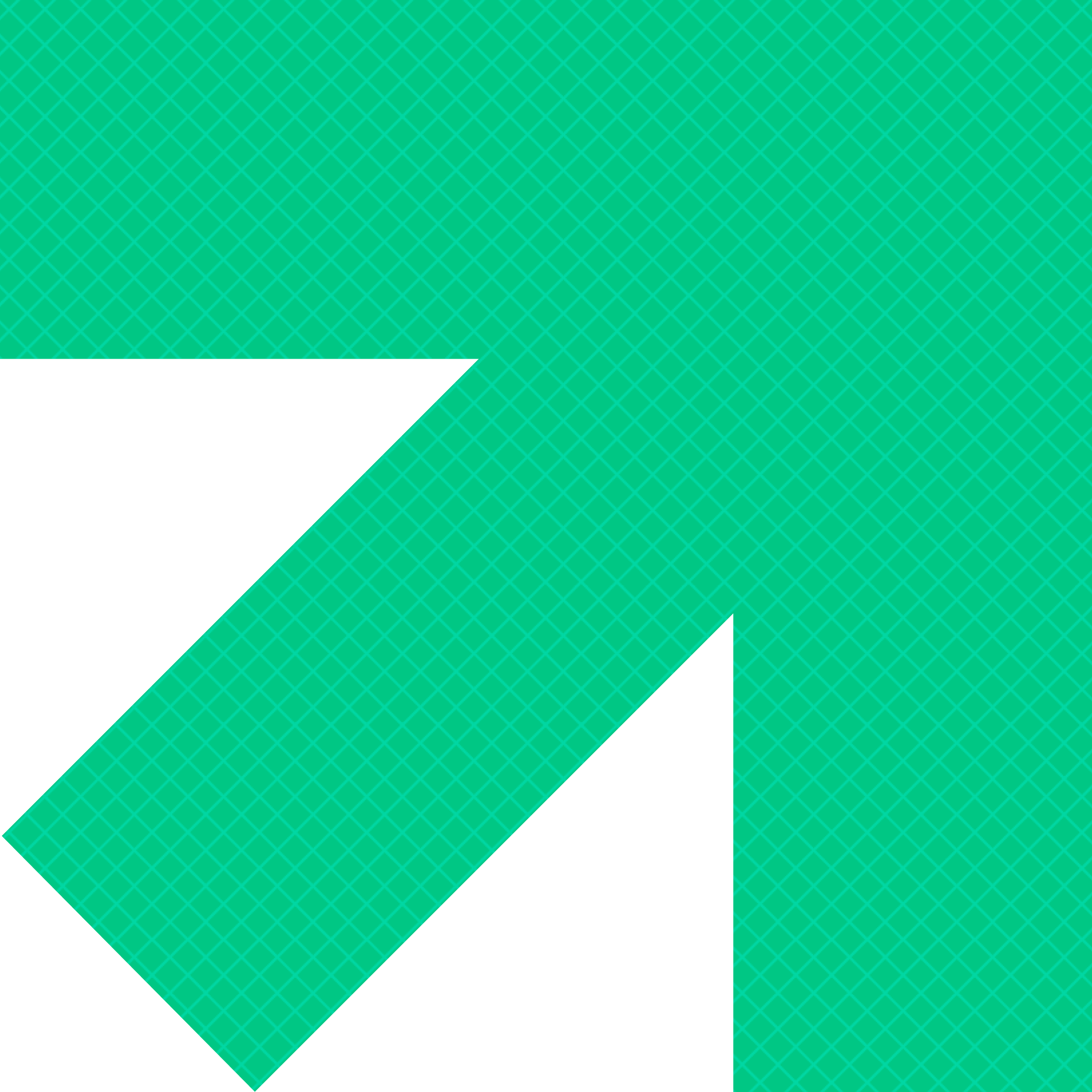Annual Report – 2024
Annual Report Overview
Who We Are
Interchange Recycling—the trade mark and trade name of the British Columbia Used Oil Management Association—is a not-for-profit society that operates a province-wide program dedicated to supporting the collection and recycling of lubricating oil, oil filters, oil containers, antifreeze, and antifreeze containers, from both the do-it-yourself market as well as the commercial and industrial markets.
Our goal is to provide British Columbians with an eco-friendly and cost-effective way to manage program materials by keeping them out of the environment and managing them at end of life. Each year, approximately 50 million litres of used oil and 3 million litres of used antifreeze are collected and responsibly managed through our program.
Through close collaboration with our key stakeholders, Interchange Recycling helps prevent automotive fluids and materials from harming the environment and instead, turns them into something useful. Working together, we’re improving the environmental and economic outcomes of everyone. It’s what we call moving forward through balance.
How We Help
It is becoming increasingly clear that throwing away or dumping oil products not only harms the environment but also wastes a valuable non-renewable resource, unnecessarily. One of the unique features of the Interchange Recycling program is the significant environmental, economic, and social benefits the program delivers. The management of program materials, through partnerships with the registered processors, has the potential to achieve goals and objectives in the areas of sustainability, circular economy, CO2 reductions, carbon offsets, zero waste, and pollution prevention. Our program and partners are an example of how a regulated EPR (Extended Producer Responsibility) program can support private sector innovation, using proven technologies, to develop economic growth and support a circular economy.
What We Do
Since 2003, Interchange Recycling has operated a BC-wide collection and recycling program for used oil, oil filters, and used oil containers and for used antifreeze and used antifreeze containers since 2011. This program allows all British Columbians to participate, including the do-it-yourself market as well as the commercial and industrial markets. Interchange Recycling is governed by a Board of Directors with representatives from various sectors, including manufacturing, automotive, retail, local government, and the public at large. Interchange Recycling provides incentives to recyclers to ensure that oil, filters, antifreeze, and containers throughout BC are collected and managed responsibly. The collectors pick up the materials from product collection sites across the province and deliver the used materials to registered processors, where they are processed to a high-quality standard that allows them to be reused or sold as raw material inputs for manufacturing or energy products.
Letter From The Chair
This past year has been one of forward momentum—marked by growth, expansion, and industry leadership. From pioneering new programs to enhancing member services and strengthening global partnerships, we have continued to push the boundaries of what’s possible in automotive product stewardship.
A defining milestone for us in 2024 was our decision to expand beyond British Columbia for the first time in over two decades. With Yukon preparing to introduce extended producer responsibility (EPR) for the first time, Interchange Recycling agreed to launch Yukon’s used oil and antifreeze program. As we lay the groundwork for a mid-2025 launch, we recognize that this is more than just an expansion—it is a chance to shape the foundation of EPR in a new jurisdiction, one that presents both unique challenges and incredible opportunities. We are honoured to be leading this charge, among a handful of other stewards, ensuring a seamless and effective introduction of EPR in the territory.
Closer to home, we have dedicated significant effort to improving the reporting experience for our members. Throughout 2024, we worked diligently to develop The Vault by Interchange Recycling, our new custom-built reporting system, designed in partnership with PwC and built on the Salesforce platform. This initiative was born from research, member feedback, and industry consultation, and we are extremely proud of the result. With a focus on usability and efficiency, The Vault represents a major step forward in making reporting more intuitive and streamlined for our members.
On a global scale, we strengthened our role as both a contributor and a learner in the international stewardship community. In November, we helped to organize the first-ever International Day, bringing together representatives from 17 countries to the ENFINITE (formerly NORA) Conference in San Diego to exchange knowledge, best practices, and ideas that will enhance the practice of used oil and antifreeze recycling worldwide. This event underscored the importance of collaboration in advancing environmental responsibility on a global scale.
As we close the chapter on 2024, we do so with a sense of accomplishment and an even stronger resolve for the future. The strides we have made this year reinforce our commitment to reducing environmental impact and advancing recycling innovation. The years ahead hold great promise, and I look forward to seeing what we can achieve together.

Brian Ahearn
Board Chair, Interchange Recycling
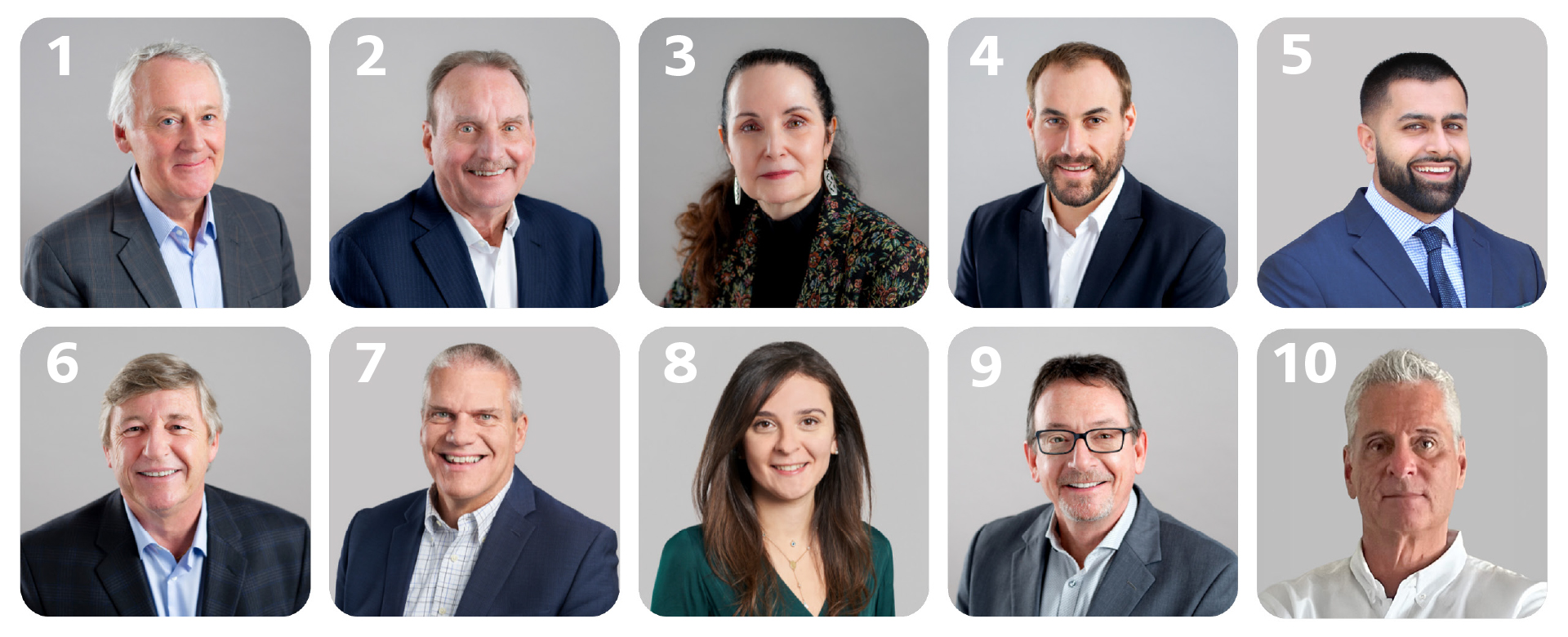
| 2024 BOARD OF DIRECTORS |
|---|
| 1. Brian Ahearn, Chair Oil Industry |
| 2. Lonnie Cole, Secretary Filter Industry |
| 3. Natalie Zigarlick, Treasurer Public Member |
| 4. Vincent Gauthier Petro-Canada Lubricants Inc. |
| 5. Irfaan Hasham Global Automakers of Canada |
| 6. Dan Higgins Canadian Tire |
| 7. Gord Klassen City of Fort St. John |
| 8. Loulia Kouchaji Honda Canada |
| 9. Wayne Marees Oil Industry |
| 10. David Mazzon Mr. Lube Canada |
Forward Through Balance
At Interchange Recycling, we prevent automotive fluids and materials from harming the environment and turn them into something useful. And more importantly, we balance the industry’s financial health and the health of everyone else. Efficiency, effectiveness, and continuous improvement are the keys to our balance, which means bringing on new partners, more materials, and refining our process.
Our scale never rests. Our balance is never still. People need to move and progress must be made but not at the cost of our planet. Because the only acceptable results are better environmental and economic outcomes for everyone.
For the next century, we believe the only path is forward through balance.
Expanding to New Jurisdictions
For more than two decades, Interchange Recycling has successfully managed an EPR program in British Columbia, ensuring that used oil and antifreeze are collected and processed responsibly for reuse.
In 2024, we took a bold step towards expansion, preparing to launch a program beyond BC’s borders for the first time — introducing Yukon’s inaugural EPR program.
This marks a significant milestone, not only for our organization but for the territory itself, as Yukon embarks on introducing EPR to the territory for the first time. Establishing an entirely new program and recycling model presents unique challenges, from navigating regional infrastructure limitations to working closely with the territorial government and local businesses to build awareness and participation. Our team began preparations two years ago, determined to establish a program that is set up for long-term success.
Launching in mid-2025, the Yukon program will be modeled on the principles that have made our BC program successful, with tailored adjustments to fit the unique needs of the region. Our focus remains on environmental responsibility, and we are committed to fostering strong relationships with local partners to create an effective recycling program.
As we continue this journey, we are excited about the opportunity to bring our expertise to a new jurisdiction and contribute to the development of sustainable recycling infrastructure in Yukon.
International Collaboration
The responsible management of used oil and antifreeze is a global challenge— one that benefits from collaboration, innovation, and shared learning. In November 2024, Interchange Recycling took a leadership role in fostering international dialogue by co-hosting the inaugural International Day at the NORA Conference in San Diego. This full-day event brought together representatives from 17 countries, each playing a vital role in the stewardship of used automotive products.
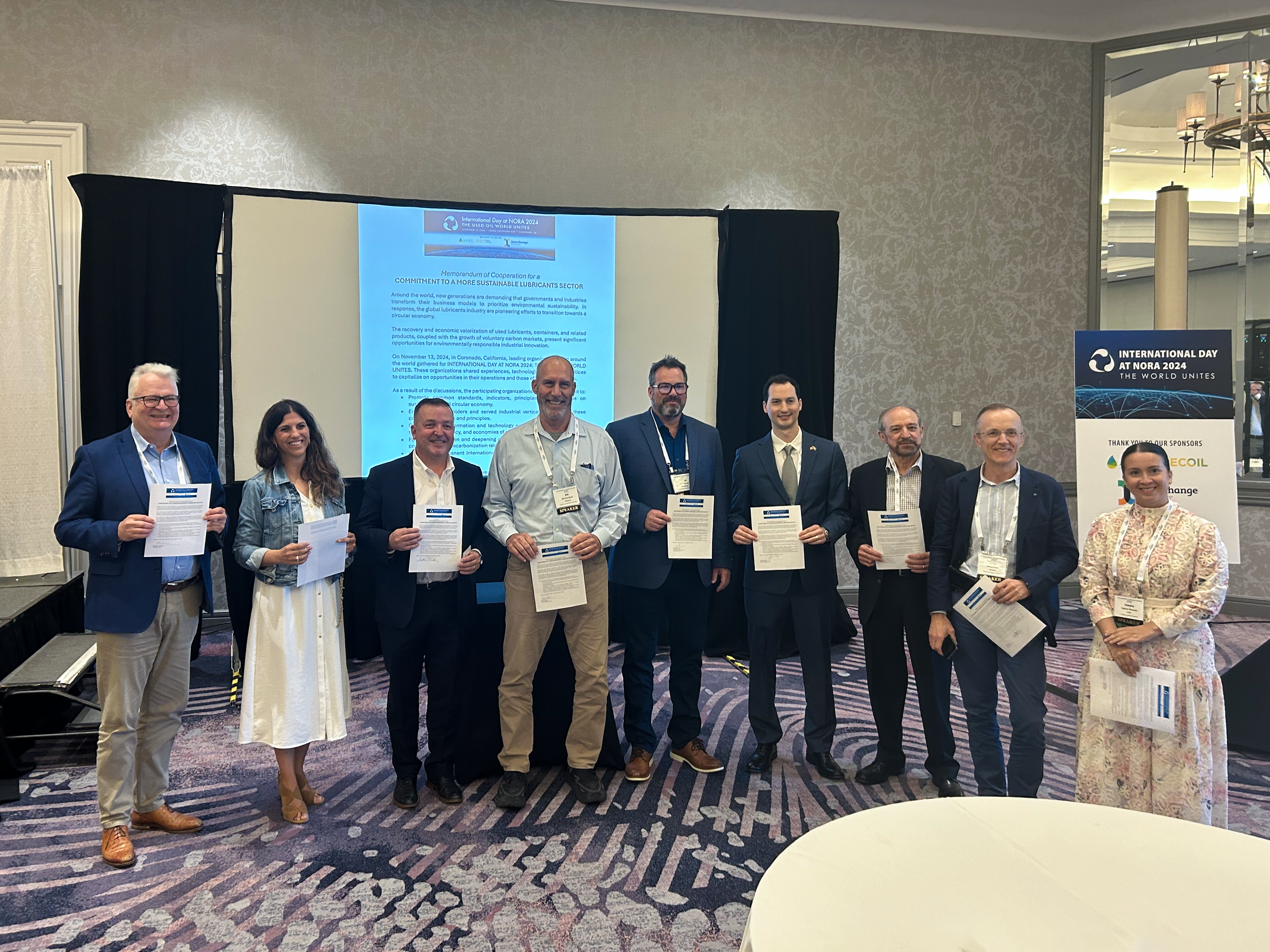
The gathering provided a unique forum for global leaders to exchange insights on policy developments, best practices, and technological advancements in recycling. Discussions ranged from improving collection and processing efficiencies to addressing regulatory nuances and market fluctuations affecting the industry worldwide. The event also reinforced the importance of harmonization, ensuring that stewardship programs align with evolving environmental and economic landscapes.
International collaboration is at the heart of progress in product stewardship. By sharing knowledge and learning from one another, we can drive meaningful advancements in environmental protection and industry innovation. Interchange Recycling remains committed to playing an active role in these global conversations, ensuring we are both a leader and a student in the ever-evolving world of circular economy solutions.
Transitions in Organizational Leadership
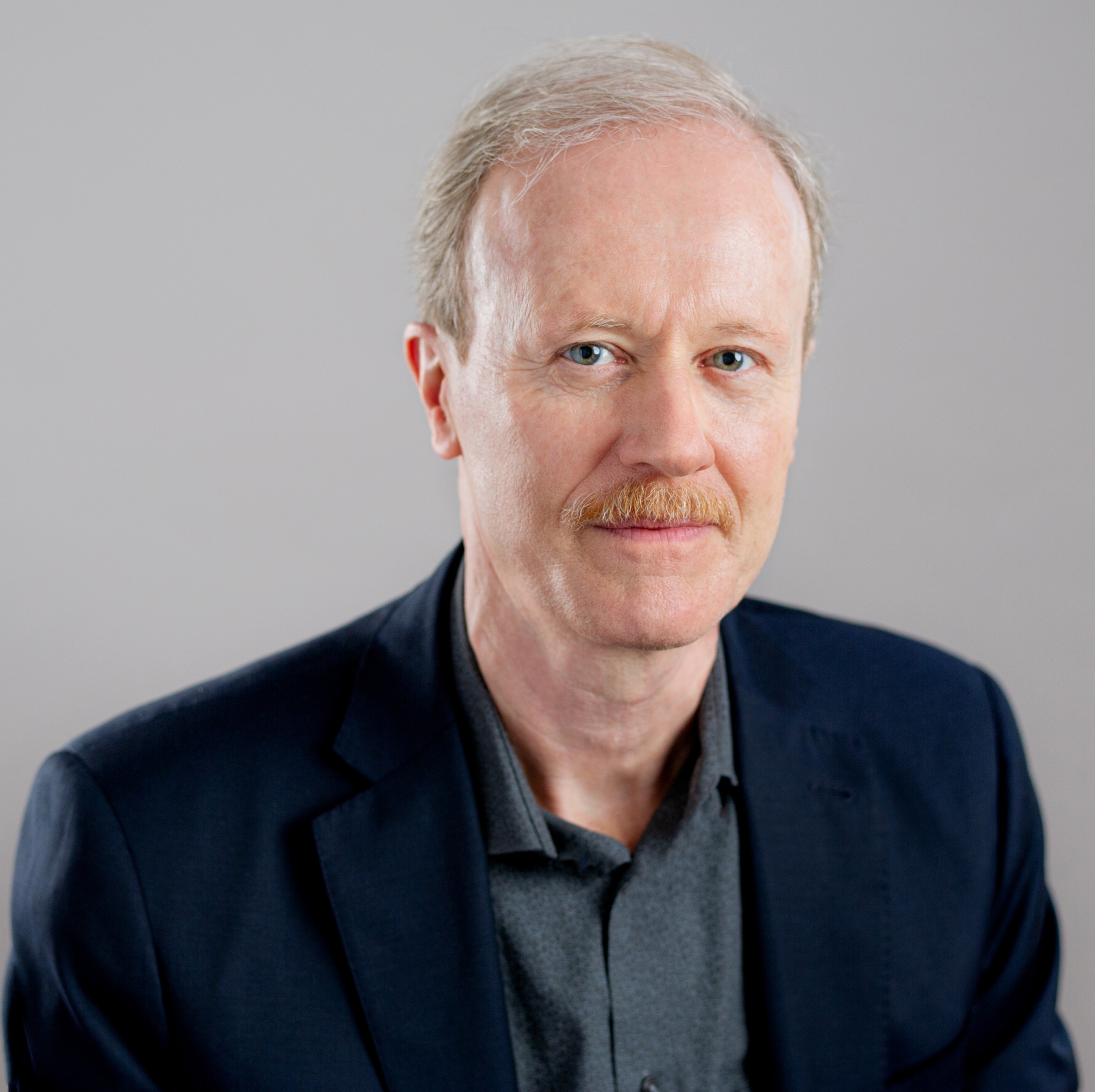

In 2024, we said goodbye to a valued member of our leadership team while also welcoming a new expert to help shape our future. After six years with Interchange Recycling, Will Burrows, Director of Consumer Collection & Sustainability, retired, closing out a long and impactful career in the recycling industry. Will’s deep expertise and unwavering commitment to sustainability have left an indelible mark on our organization. His knowledge and leadership have been instrumental in advancing our stewardship programs. We extend our deepest gratitude to Will for his years of service and wish him the very best in this new chapter.
At the same time, we were thrilled to welcome Jenn Robson as our new Director of Operations in mid-2024. Jenn brings a wealth of experience in EPR, having held key roles at Product Care Recycling, the Canadian Electrical Stewardship Association (CESA), and most recently, Encorp Pacific, where she served as Director of Projects. In her first few months with Interchange, Jenn has already played a pivotal role in shaping two significant initiatives—the development of our new reporting system, The Vault, and our expansion into Yukon. We look forward to continuing our work with Jenn and advancing our mandate with her expertise.
Continuous Improvement in Reporting
Throughout 2024, Interchange Recycling worked to develop The Vault, a next-generation online reporting portal, with the goal to go live the first week of January 2025. Developed in collaboration with PwC and built on the Salesforce platform, The Vault represents a major leap forward in efficiency, usability, and data security for our members.
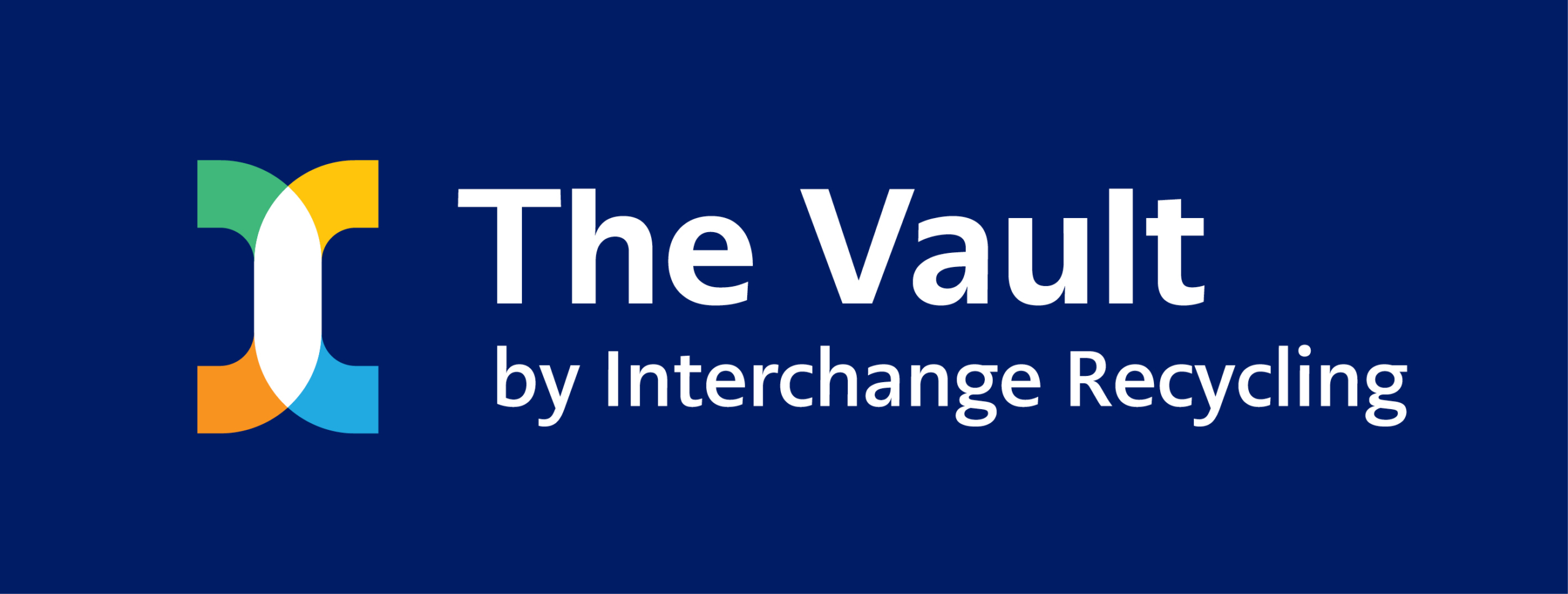
For years, the existing reporting system, Pictus (also known as One Window), served as the backbone for UOMA associations across Canada. However, as technology advanced and provincial program needs evolved, it became clear that a more tailored, adaptable solution was necessary. Working alongside the Alberta Recycling Management Authority (ARMA), we embarked on a project to develop custom-built platforms designed to serve the unique requirements of each province’s needs.
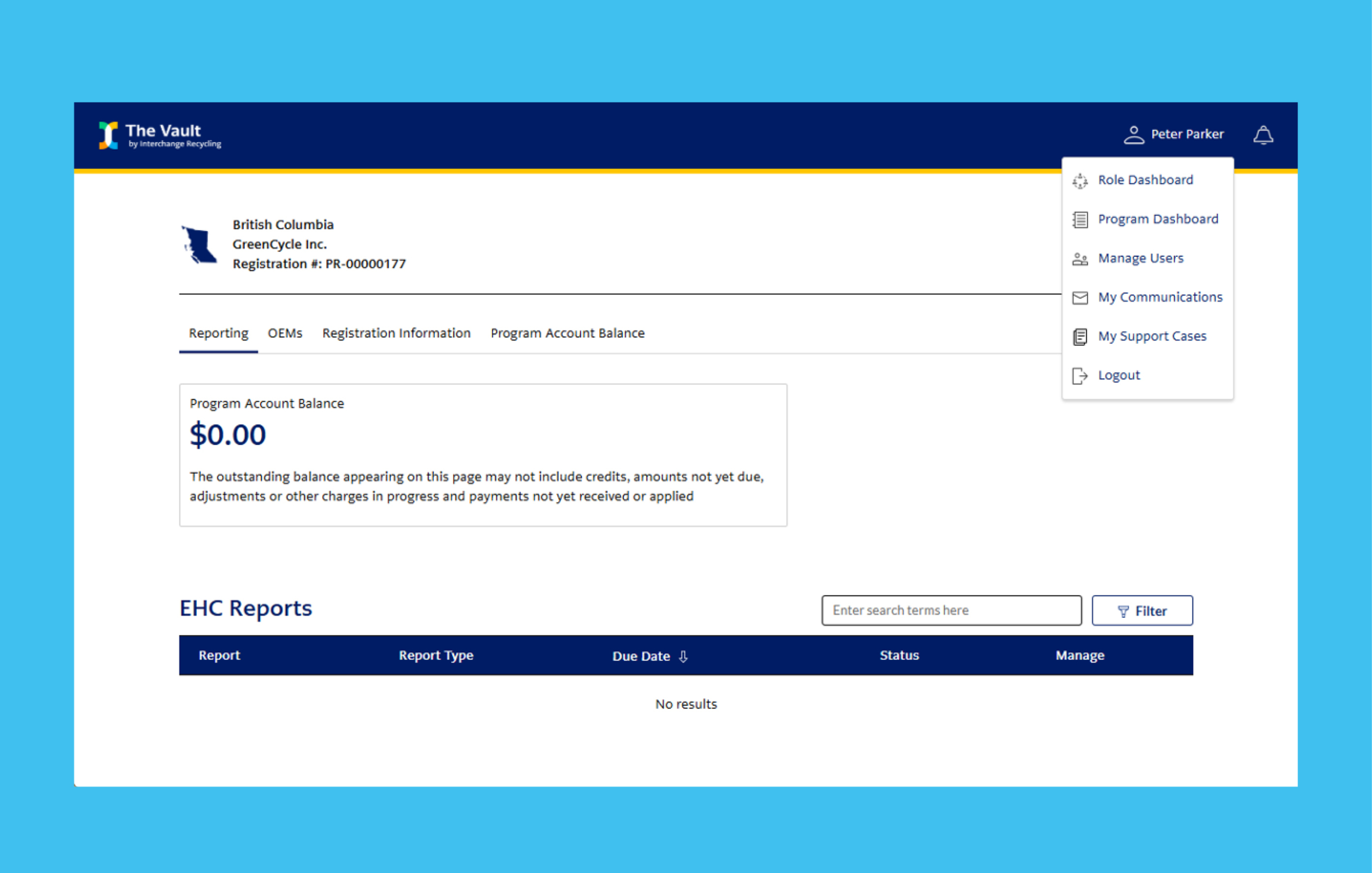
By investing in advanced digital tools, we are ensuring that product stewardship remains not only effective but also user-friendly for the members we serve.
Communications & Public Outreach
Interchange Recycling’s communications strategy is designed to educate, engage, and inspire action across all audience segments. Spanning the full media spectrum, our approach integrates digital, traditional, and earned media to ensure that British Columbians understand the importance of responsible recycling and can easily access the information they need to participate in the program.
At the core of our outreach is our website, a comprehensive resource that provides FAQs, a recycling centre locator tool, accepted products, and transparency about the recycling journey. To drive traffic and connect users with relevant information, we deploy a targeted search engine marketing (SEM) strategy, ensuring that individuals searching for recycling-related content can easily find what they need. Our digital presence extends across Google Display, YouTube, and Meta advertising, and in 2024, we expanded our reach by introducing Reddit advertising, further diversifying our digital channels.
By leveraging contextual targeting to align our ads with users’ browsing behaviours and interests, our digital advertising in 2024 delivered a more tailored and impactful experience. For example, individuals watching pet-related content on YouTube were served an ad about used oil featuring pets, increasing engagement and recall. Recognizing that males are more likely to engage with our program, we also ran targeted campaigns on The Score sports app to strengthen our connection with this key audience.
Traditional media remained an essential component of our strategy, reinforcing visibility through high-impact transit advertising, including vibrant full-bus wraps that received strong recall in surveys and anecdotal feedback. To engage relevant trades groups, we placed print ads in publications serving the automotive, farming, forestry, oil and gas, mining, and trucking sectors, ensuring our messaging reached those directly involved in product use and disposal. Additionally, we leveraged billboard placements at Mission and Saratoga raceways, effectively reaching motorsports enthusiasts.
A new strategic focus in 2024 was youth engagement, recognizing the importance of fostering long-term recycling habits. We introduced paid advertising on post-secondary campus screens and expanded into digital audio advertising, reaching younger audiences through podcasts and music streaming platforms.
Collectively, these efforts in paid media resulted in nearly 24 million impressions in BC in 2024. Beyond paid media, earned media relations played a crucial role in amplifying our impact. We worked closely with journalists and media outlets to secure coverage across print, broadcast, and online platforms, ensuring that our key messages reached a broad audience. We also deployed a boots-on-the-ground ambassador team who toured the province and directly engaged with and educated consumers. Through press releases, interviews, media partnerships, and ambassador engagement, we reinforced our leadership in product stewardship and environmental responsibility.
By continuously refining our approach and expanding our reach, Interchange Recycling remains at the forefront of public education, ensuring that recycling is accessible, engaging, and top-of-mind for all British Columbians.
2024 Awareness Campaign:
- Length: 4 months, April to November
- Year Round: Paid Search & Bus Wraps
- Channels: Digital Display, Digital Audio, YouTube, Paid Social Media
- Estimated Reach: 23 million+
Social Ads
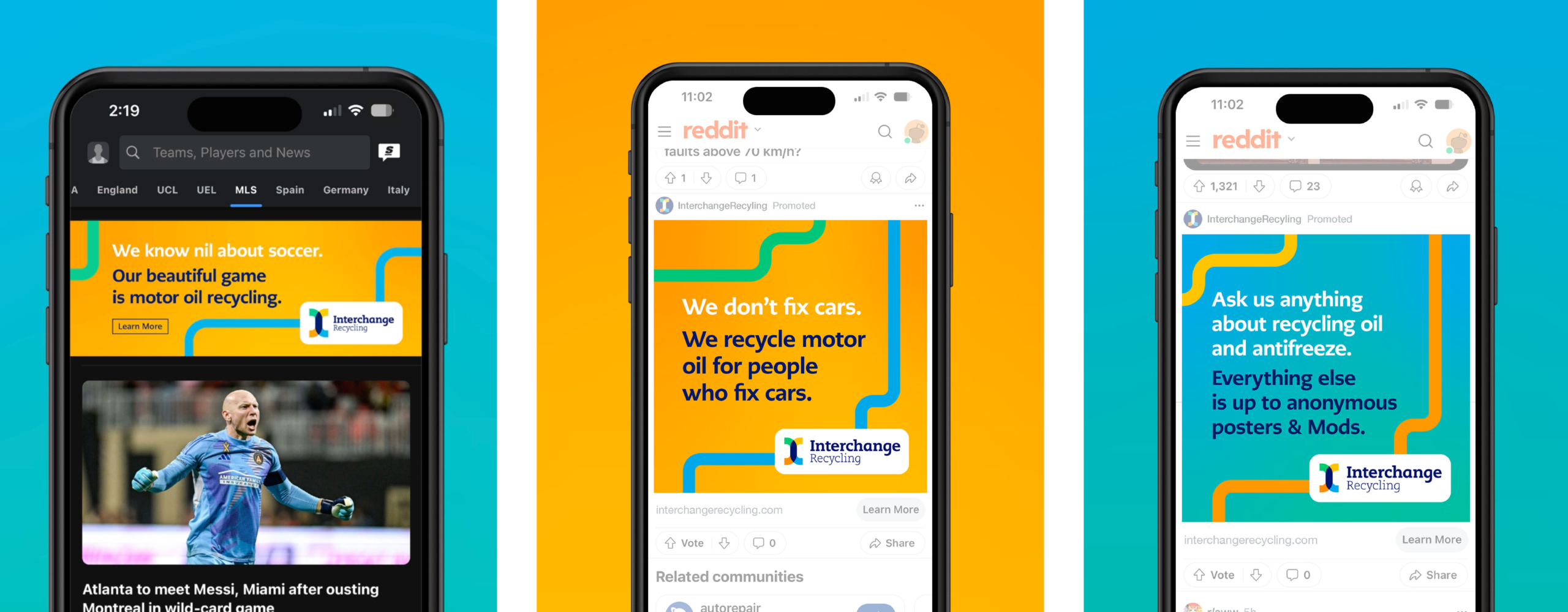
YouTube Ads
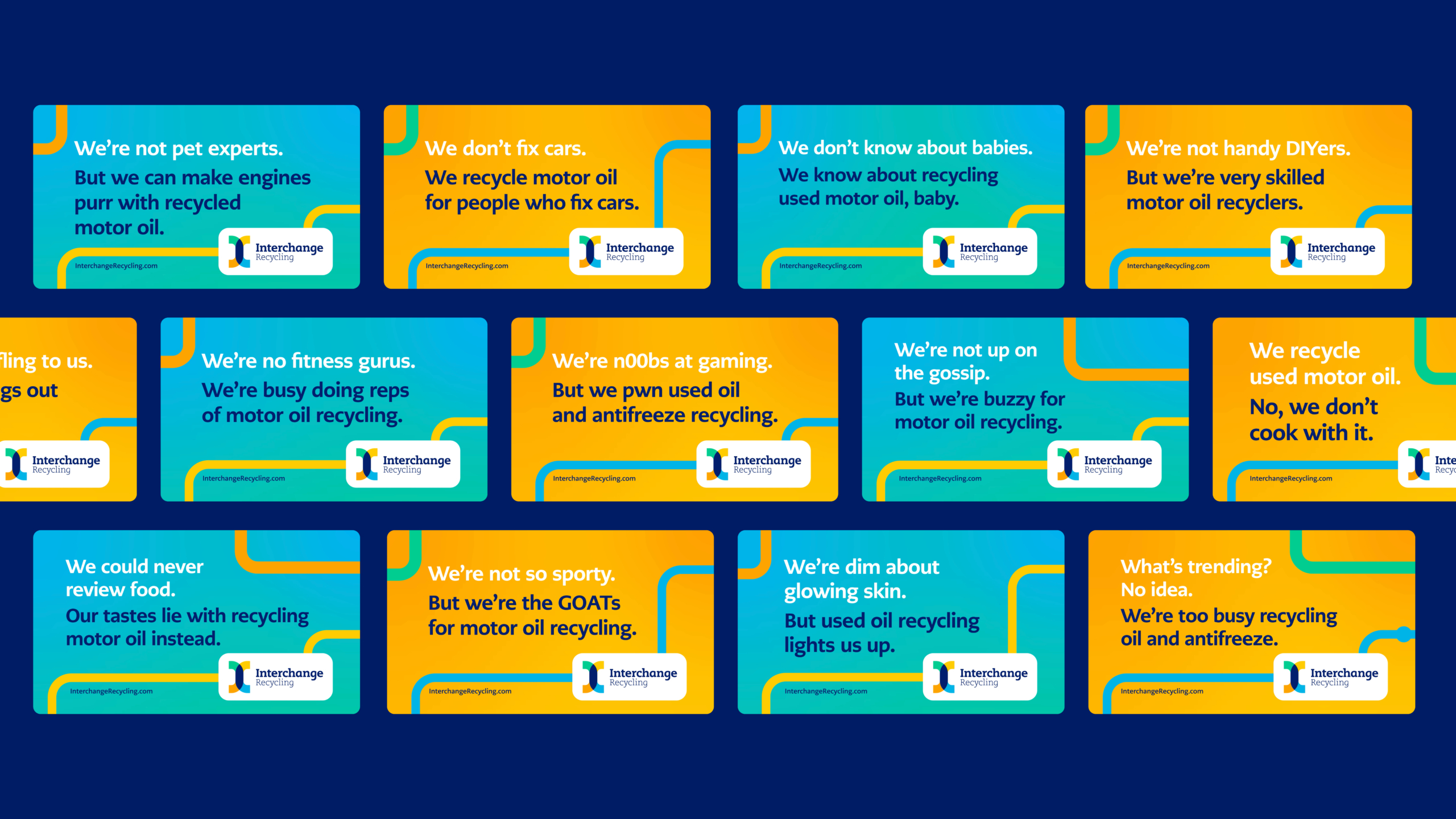
Bus Wraps
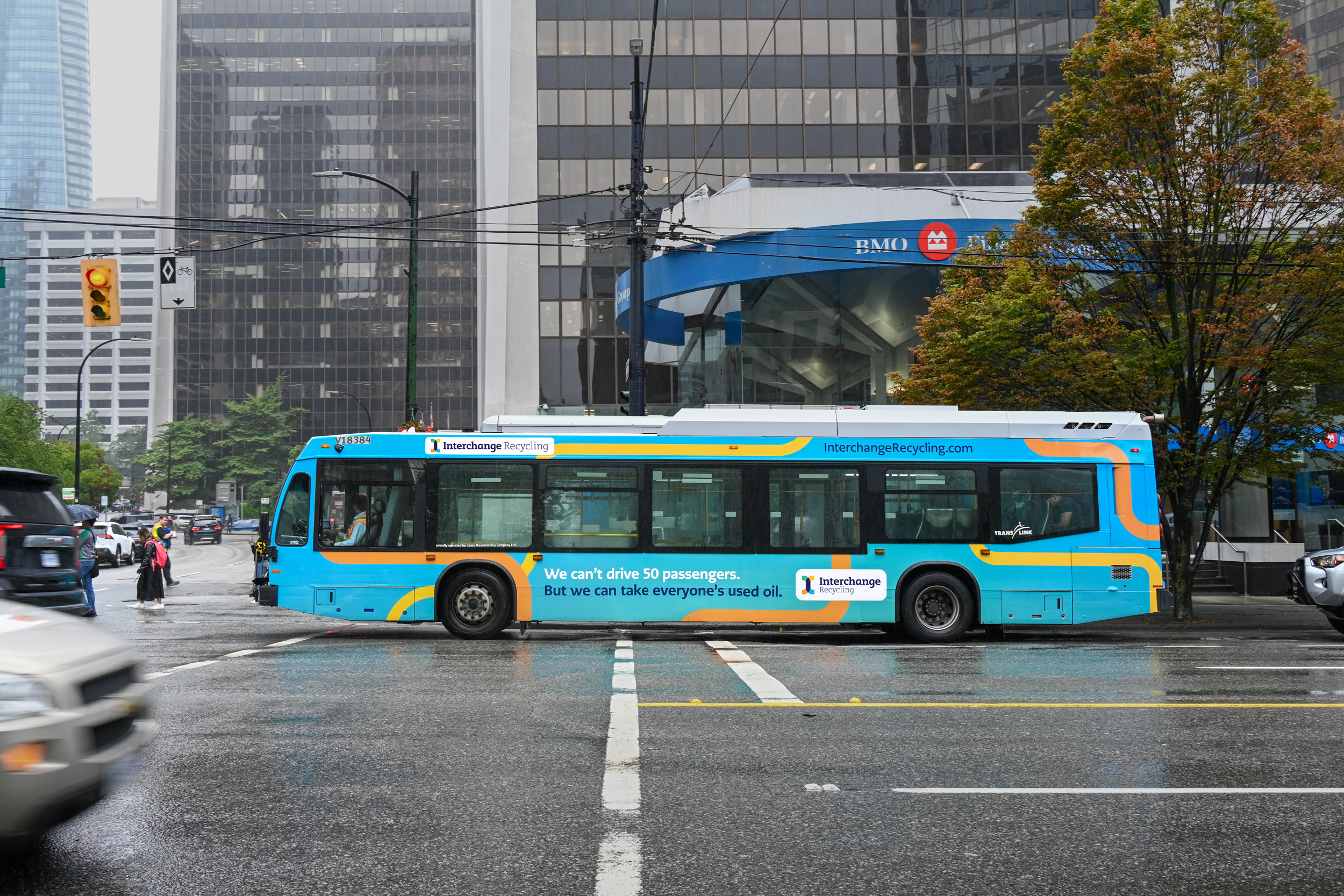
Podcast Ads
2024 Public Relations:
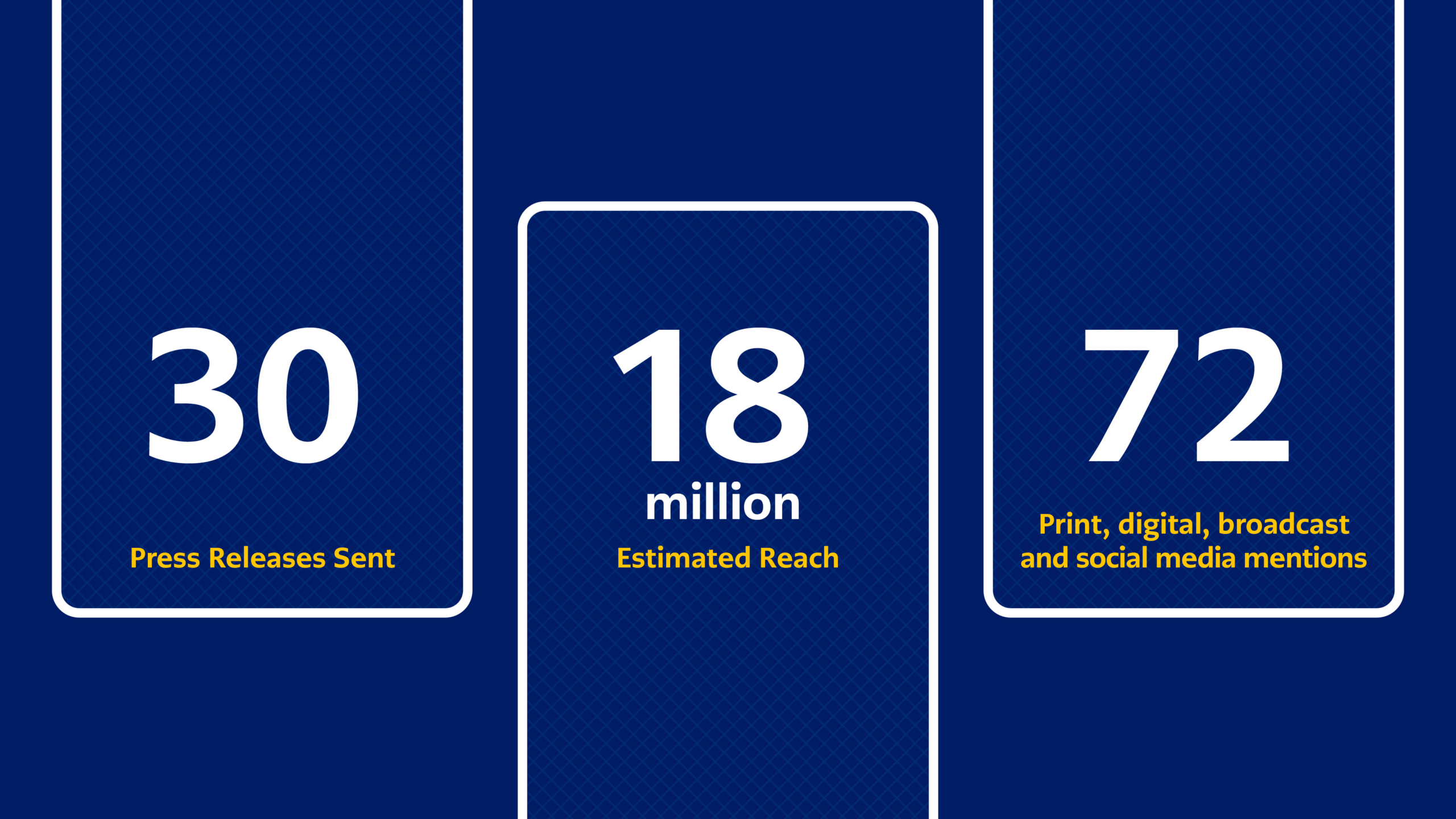
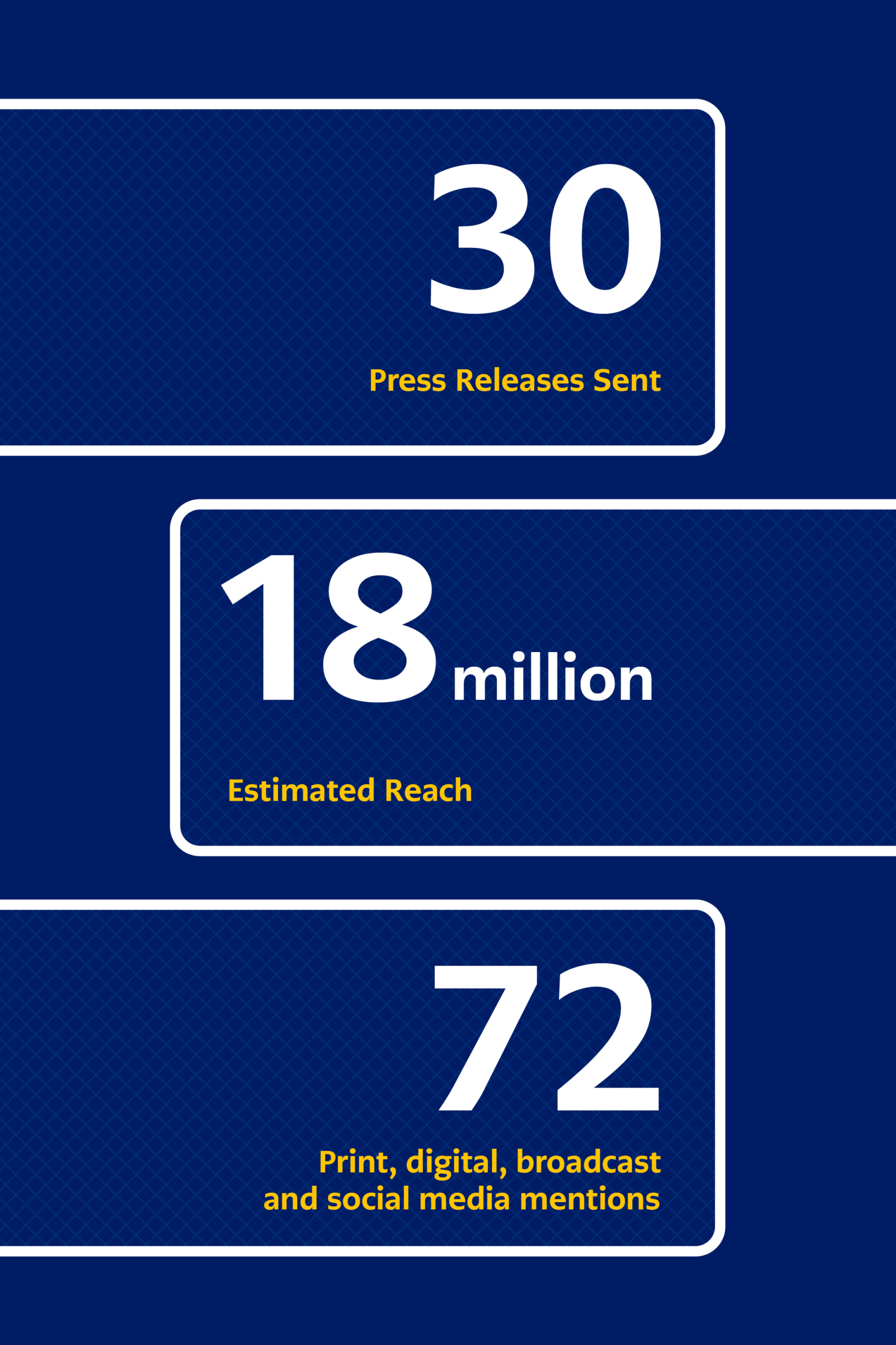
2024 Ambassador Tour
Our community engagement team travelled around the province in 2024, attending 15 high-visibility events and visiting seven Return Collection Facilities between June and September. The Tour helped to increase awareness for our program and inform people of the locations of used oil recycling facilities. We also received free media coverage that reached more than 54,000 British Columbians.
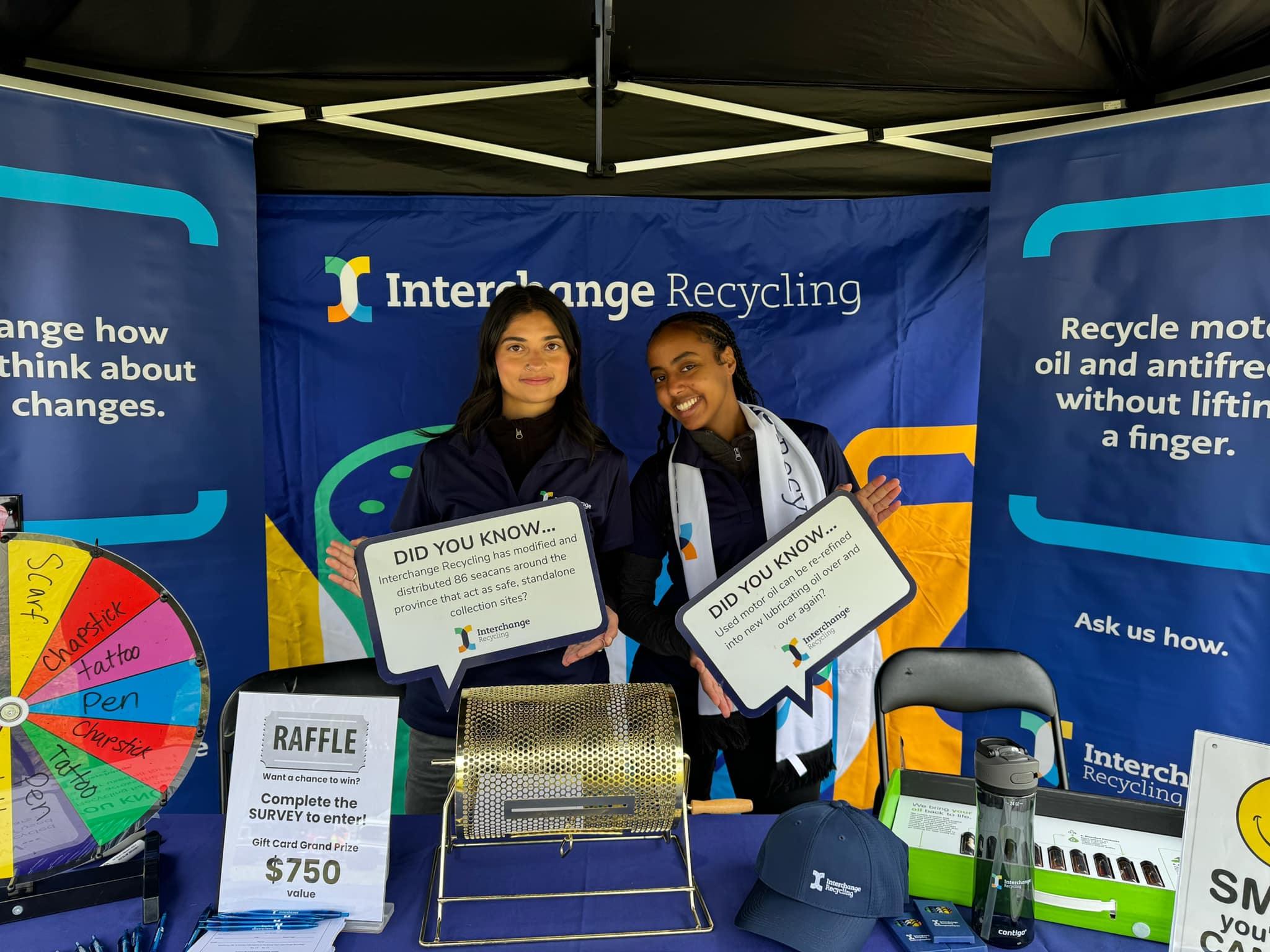
Consumer Awareness
Since 2003, Interchange Recycling has managed a highly successful program with consistently impressive recovery rates.
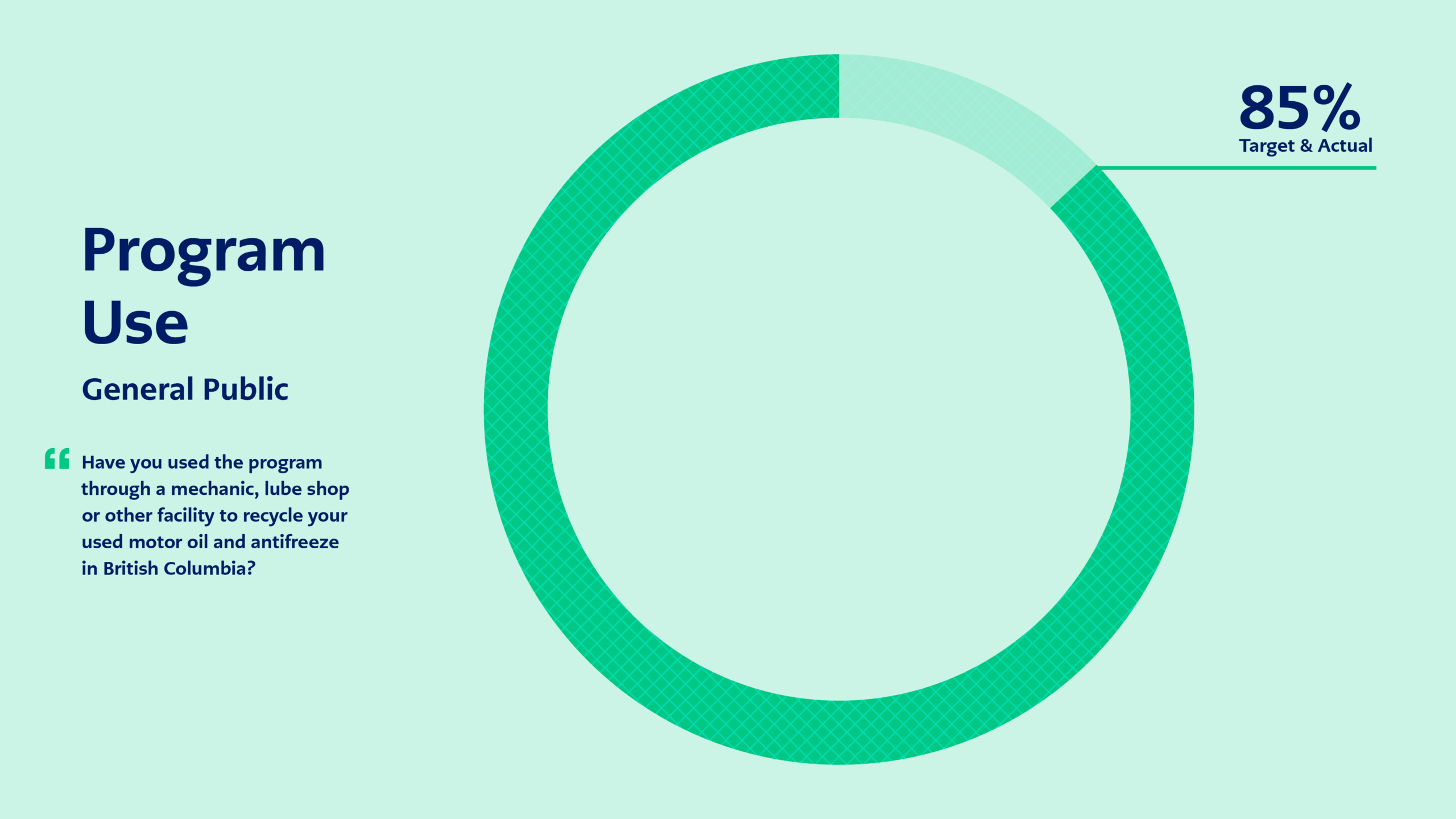
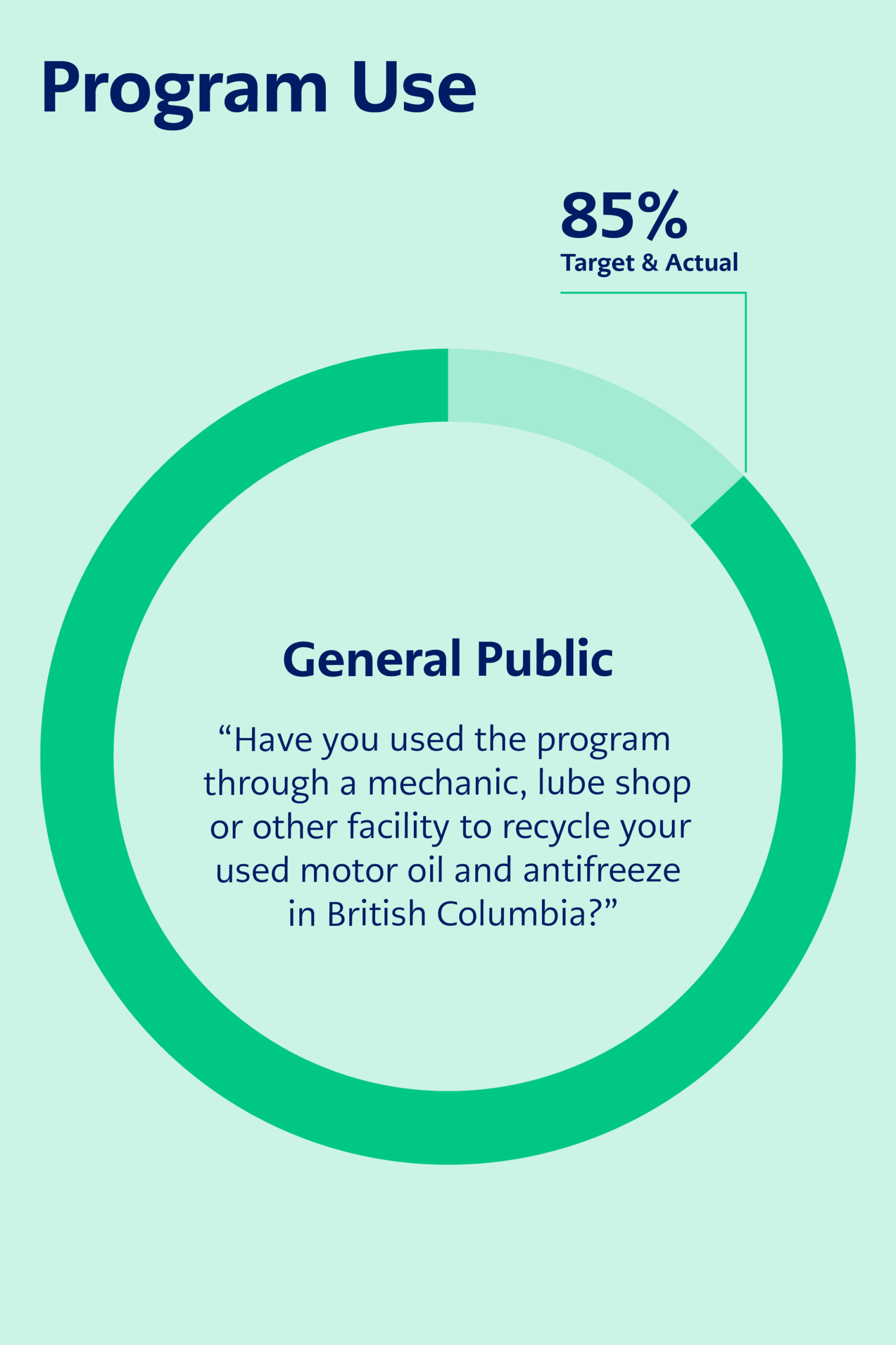
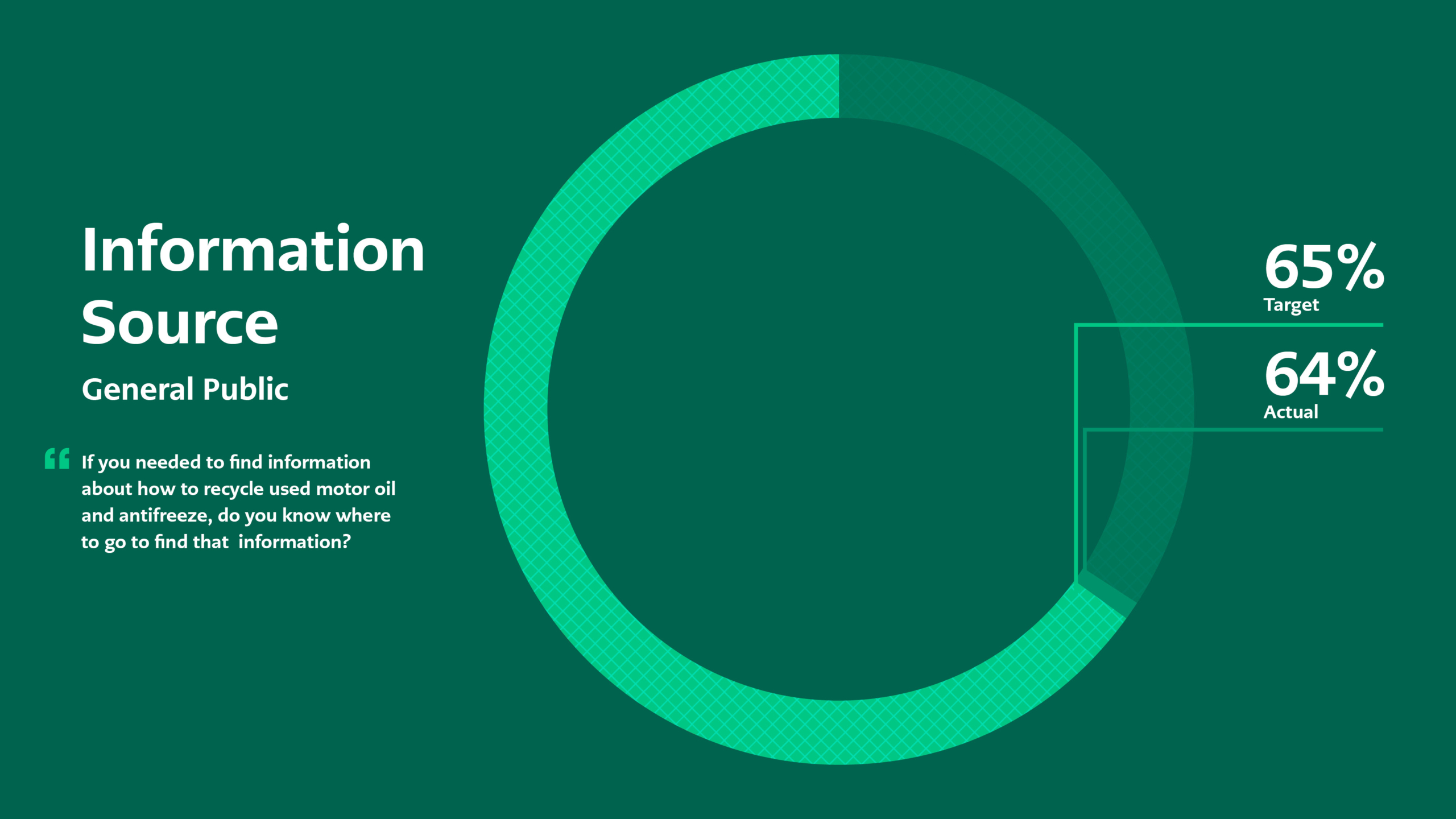
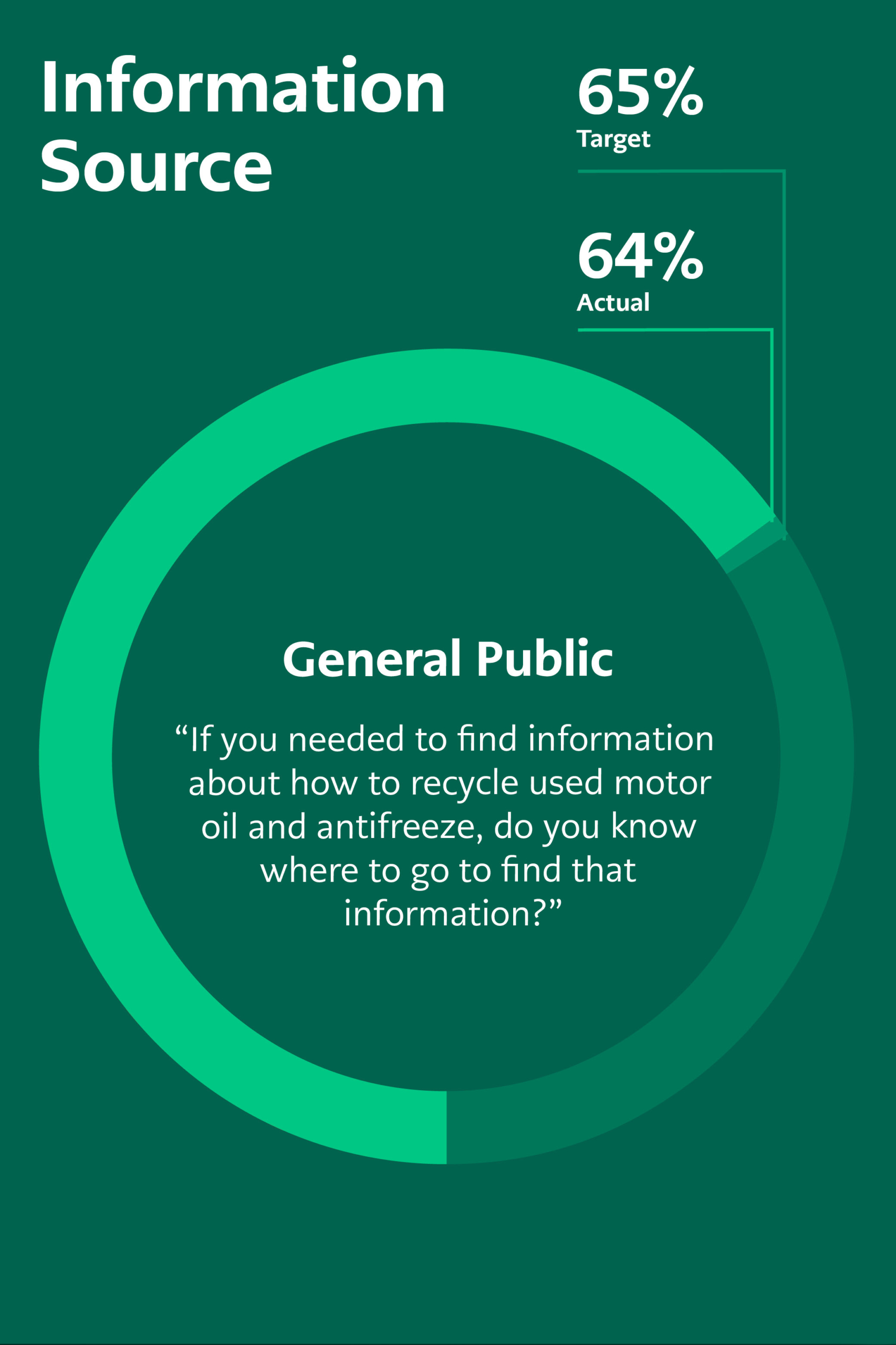
While a significant portion of the products collected originate from commercial facilities, our communications campaigns primarily target consumers who manage their own oil or antifreeze changes and utilize our extensive network of public recycling centres across the province. These DIY recyclers are responsible for only a small portion of collections, yet our 2024 annual survey revealed that the majority (62%) of British Columbians are aware of a program that recycles used motor oil and antifreeze in BC. While this is slightly below the 68% target, the results have been stable for four years in a row, suggesting a mature program and a highly aware public.
Importantly, most vehicle-owning British Columbians actively participate in our program without explicit awareness. By patronizing licensed facilities connected to Interchange Recycling’s commercial collection network, they unknowingly contribute to responsible material management and recycling. As part of our ongoing communications strategy, we aim to engage with these program users, affirming their environmentally conscious actions and encouraging continued participation. We’re also committed to educating consumers that by bringing their vehicles to licensed facilities, they are indeed doing the right thing and doing their part to give used oil and antifreeze a new life.
To ensure the efficacy of our efforts and maintain accurate insights into consumer behaviour, Interchange Recycling actively participates in and financially supports the biennial consumer awareness survey conducted by the Stewardship Agencies of BC (SABC). Additionally, we conduct our own annual survey in collaboration with an independent third-party survey provider. Employing comprehensive methodology, both surveys encompass respondents from diverse geographical regions and demographic backgrounds, enabling us to gather robust and reliable data essential for refining our outreach strategies and optimizing program impact.
Key Collaborations
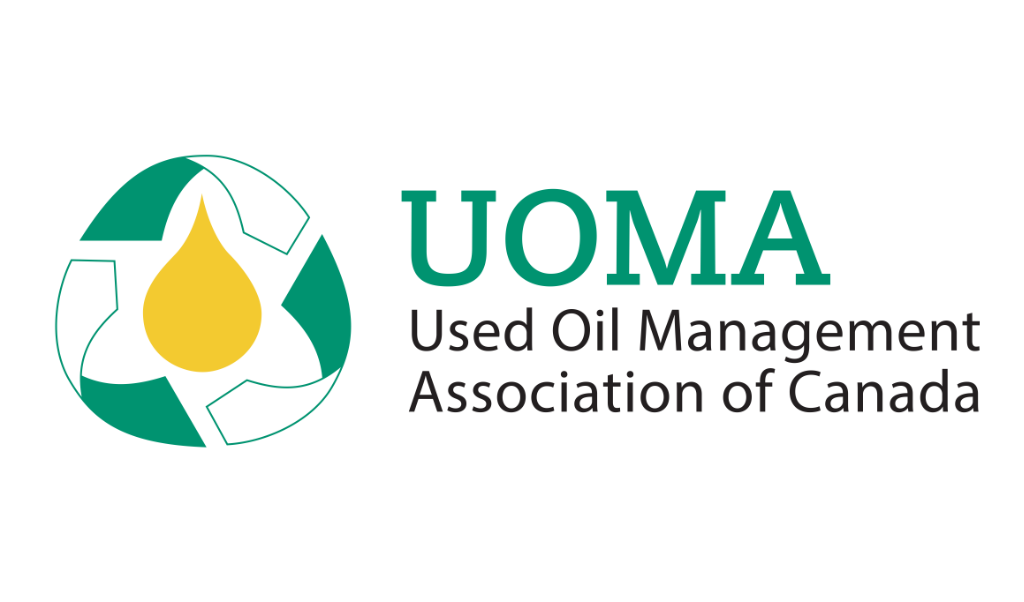
Provincial Programs (UOMAs)
Interchange Recycling works closely in partnership with nine other provincial programs through the National Used Oil Material and Antifreeze Advisory Council (NUOMAAC), a national working group that coordinates the Canada-wide used oil and antifreeze materials recycling effort and encourages national standards. The UOMA industry-led stewardship program model works in close collaboration to achieve environmental, economic, and socio-economic successes across Canada.
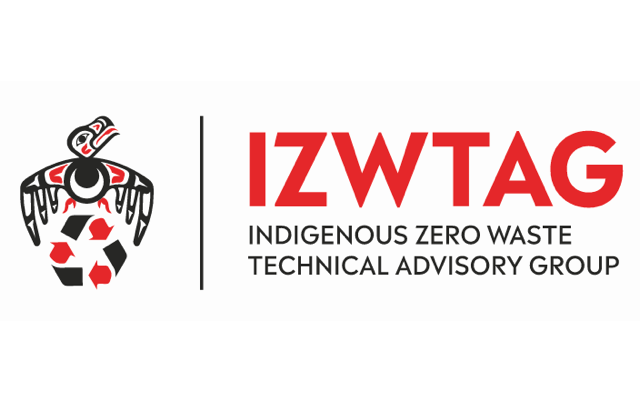
Indigenous Zero Waste Technical Advisory Group (IZWTAG)
Interchange Recycling is proud to have been the first Associate Member of the Indigenous Zero Waste Technical Advisory Group (IZWTAG), a non-profit society dedicated to supporting zero waste systems in all First Nation communities in BC. In 2024, Interchange Recycling worked with IZWTAG to ensure used oil and other program products were safely managed in First Nation communities and responsibly recycled.
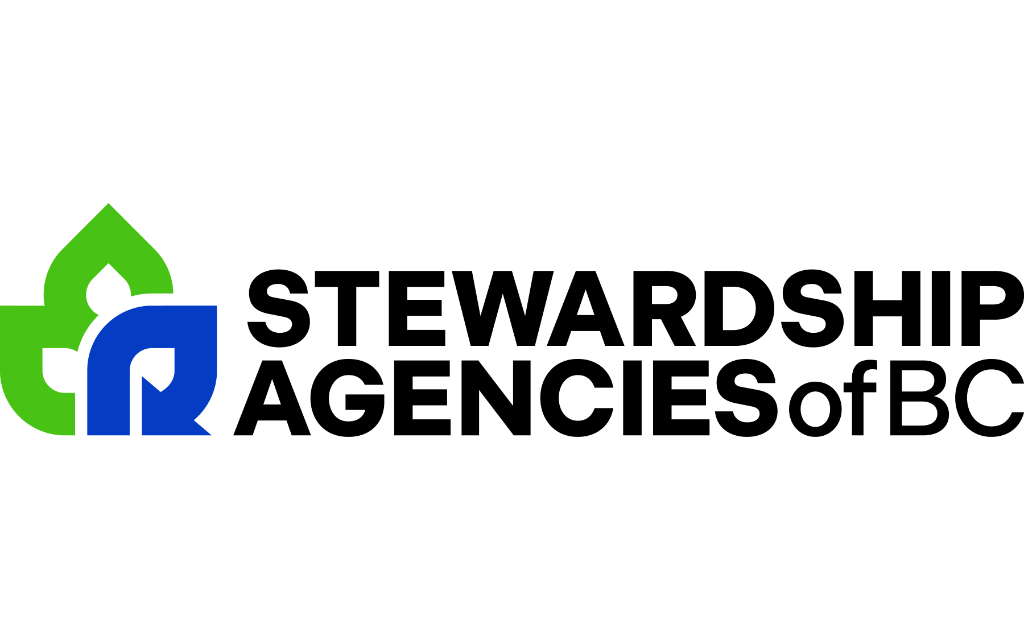
Stewardship Agencies of BC (SABC)
Interchange Recycling is an active member of the Stewardship Agencies of British Columbia (SABC), an informal alliance of industry product stewardship organizations. SABC works with the government, service providers and other stakeholders to ensure BC’s extended producer responsibility model is successful and cost effective.
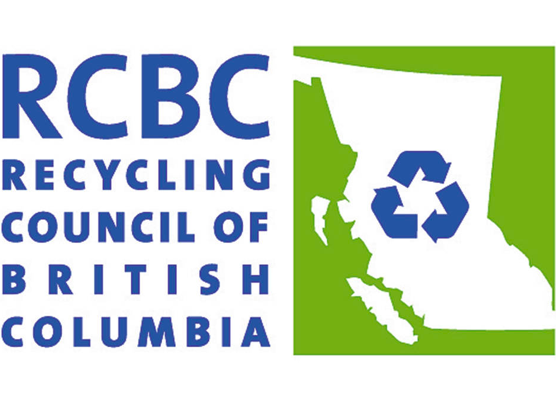
RCBC Recyclepedia Database & Information Hotline
As part of our commitment to always ensuring access to key program information, Interchange Recycling helps fund the Recycling Council of BC’s hotline and Recyclepedia database. Consumers looking to have their recycling questions answered can call the hotline at 1-800-667-4321 or download the Recyclepedia app.
Collection Event Summary
In 2024, Interchange Recycling was proud to provide funding through our grant program to Regional Districts, municipalities, and other groups to support the following community collection events:
Sept 14 – Creston
Columbia Shuswap Regional District (CSRD)
Sept 15 – Salmo
Columbia Shuswap Regional District (CSRD)
Sept 21 – Castlegar
Regional District of Central Kootenay (RDCK)
Sept 22 – Kaslo
Regional District of Central Kootenay (RDCK)
Sept 28 – Nakusp
Regional District of Central Kootenay (RDCK)
Sept 29 – Silverton
Regional District of Central Kootenay (RDCK)
Oct 19/20 – Langley
Township of Langley
These community collection events are a great way for residents to safely return any materials and hazardous waste they have been storing in their homes and are unsure of what to do with it. Interchange Recycling is often one of several stewardship programs participating in the event.
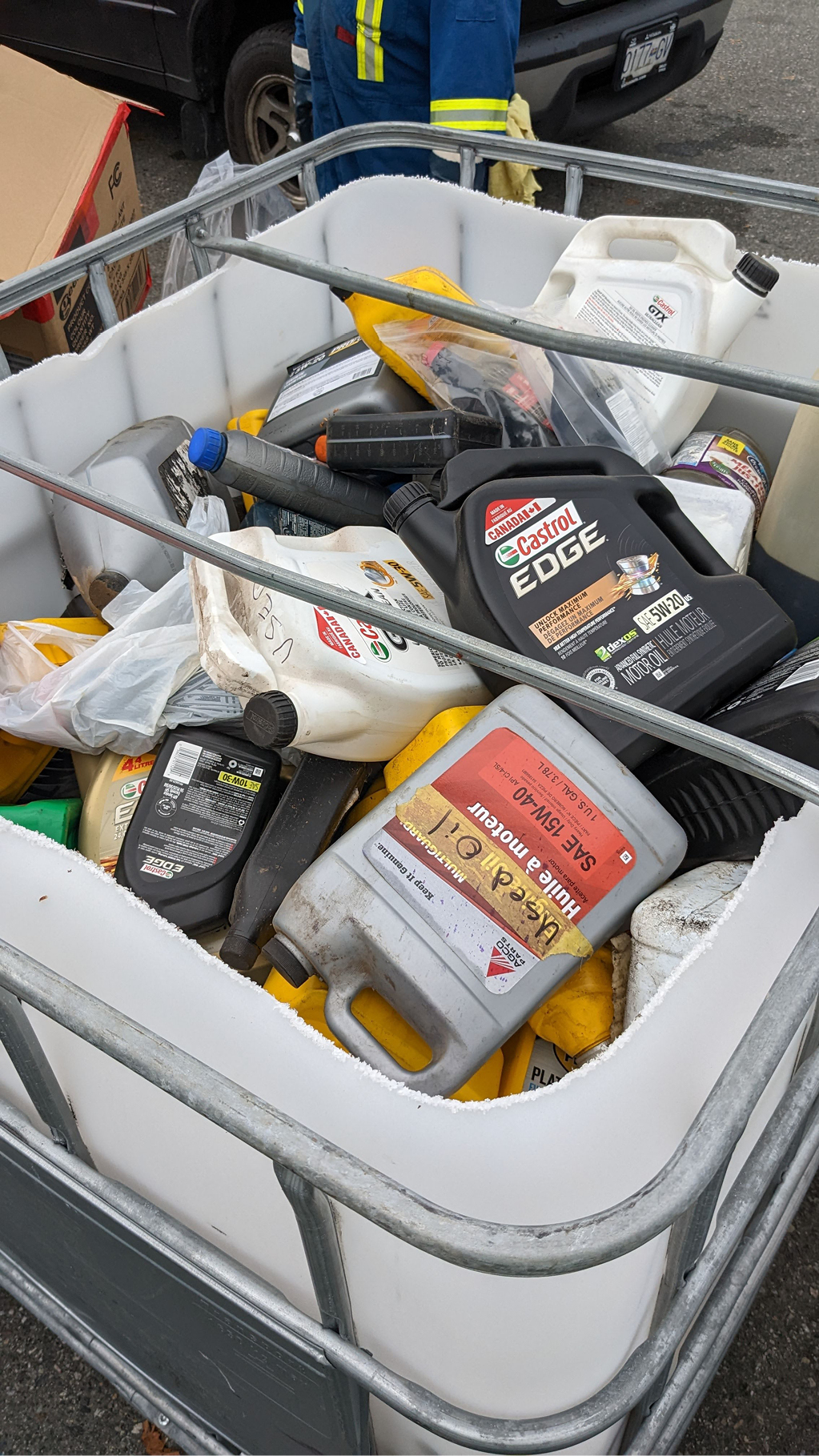
Collection Network Performance
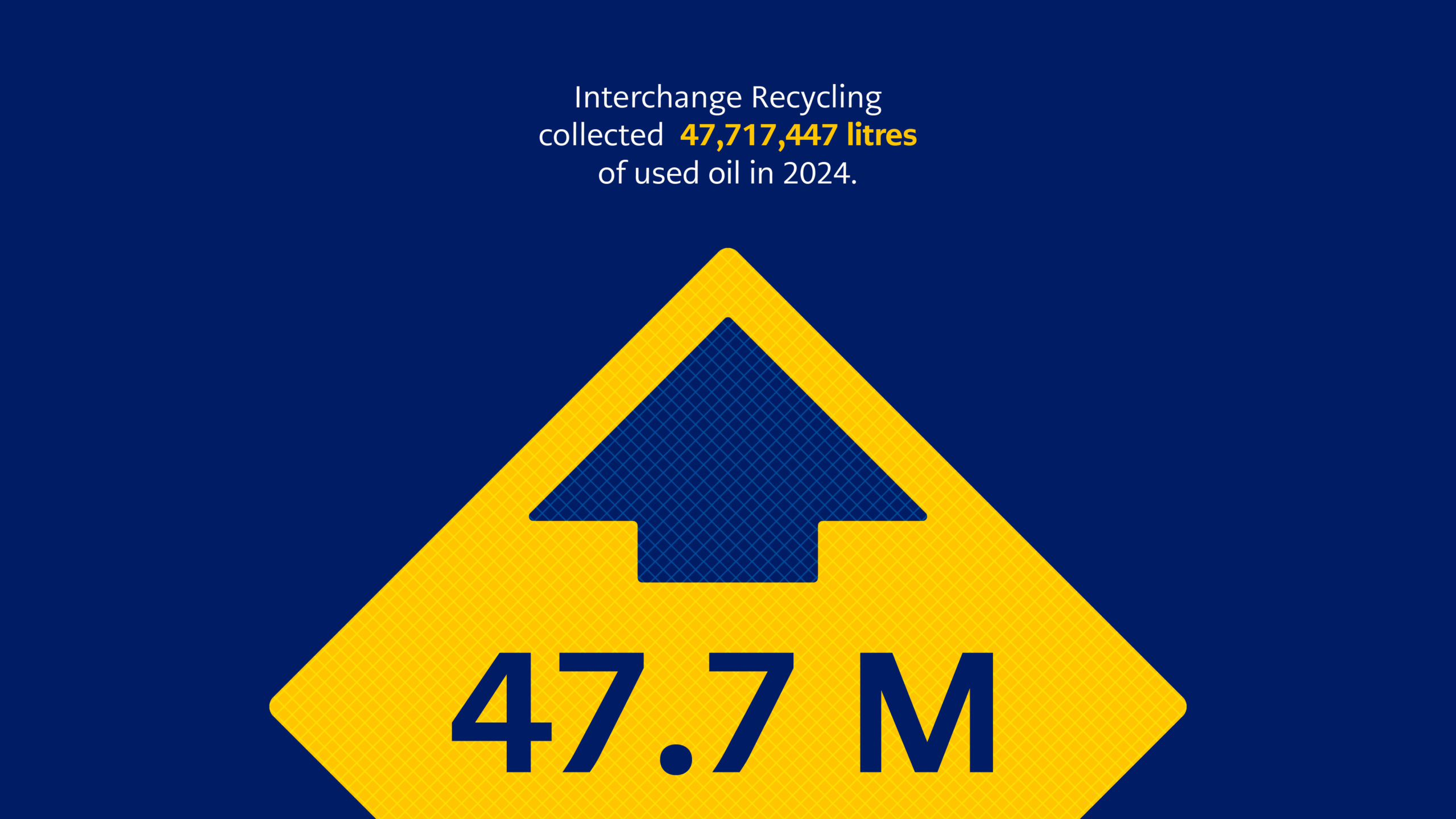
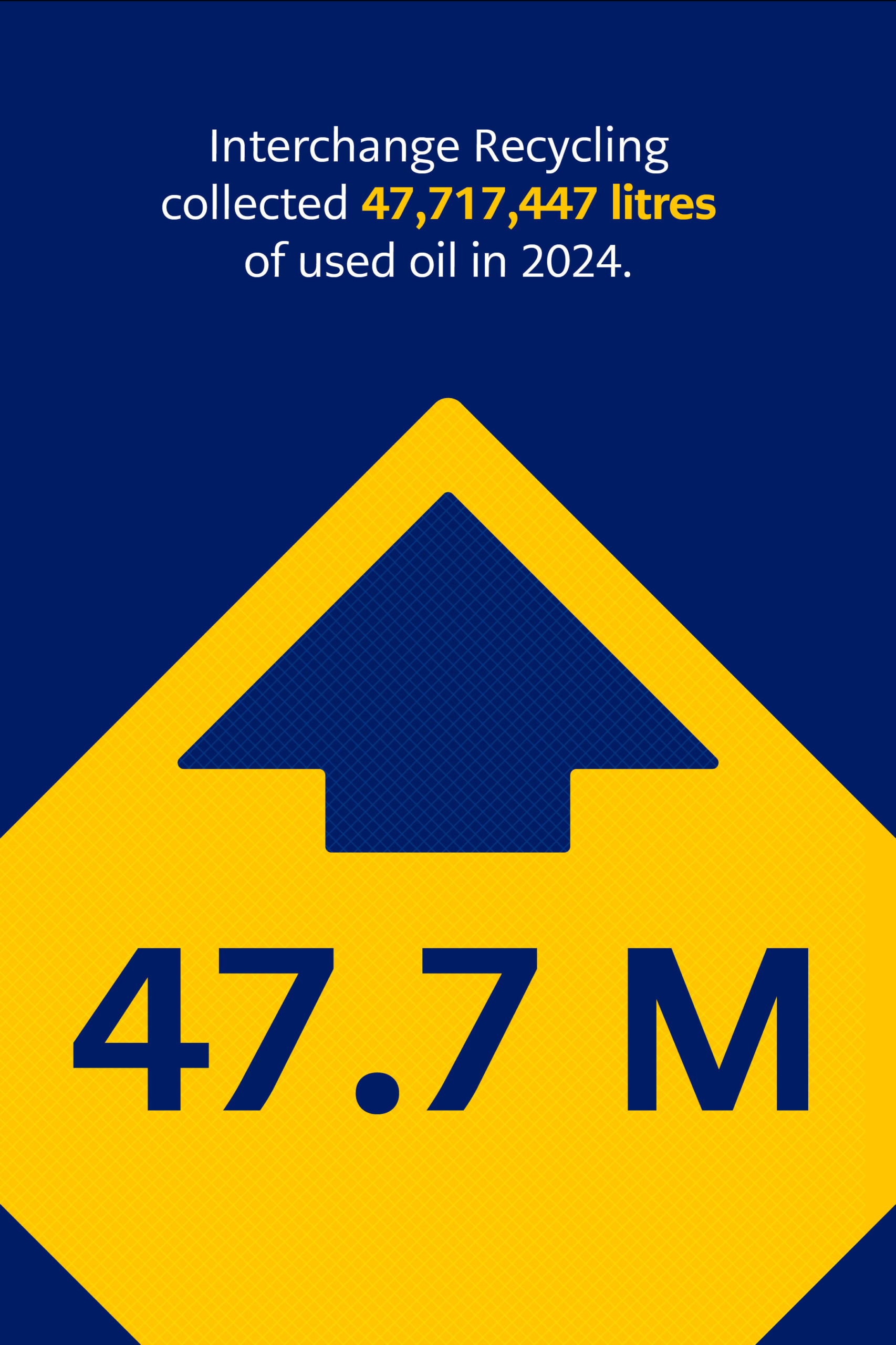
We are very pleased to share that our used oil collection totaled more than 47 million litres in 2024. This volume is a testament to the continued efforts of all of our partners who help ensure the safe collection of program materials.
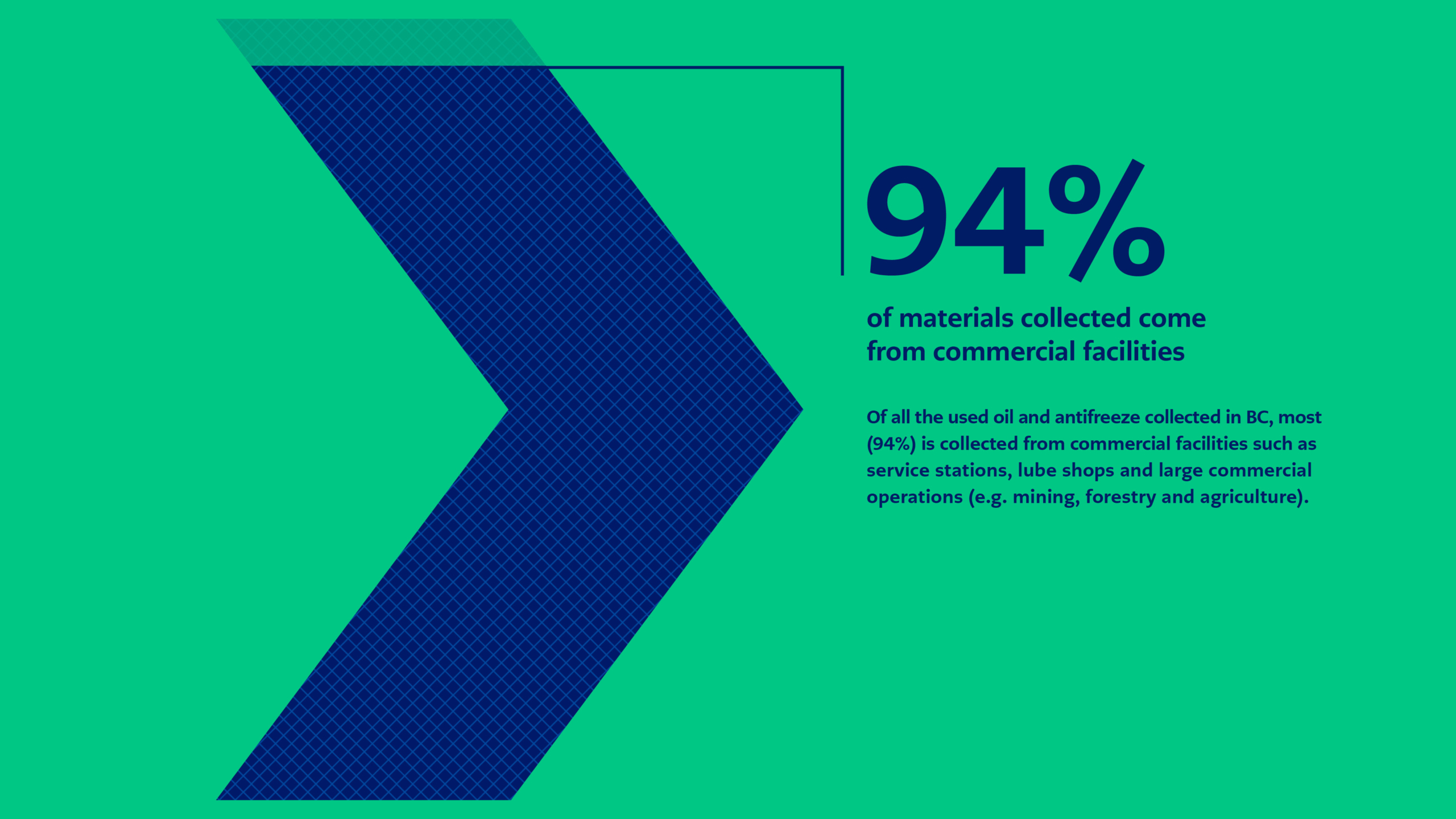
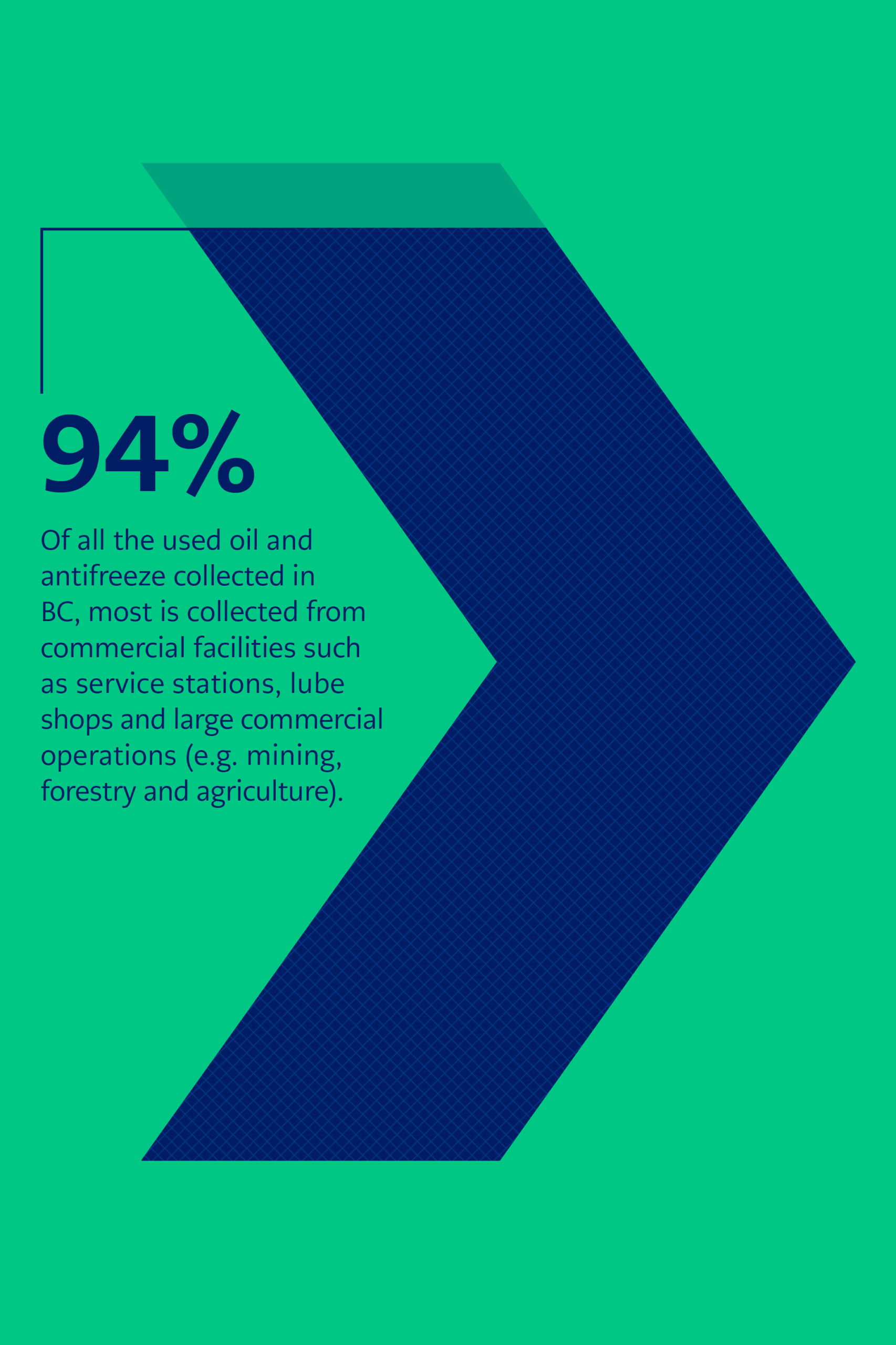
Of all the used oil and antifreeze collected in BC, most (94%) is collected from commercial facilities such as service stations, lube shops and large commercial operations (e.g. mining, forestry and agriculture). Our large network of generators operates across nine designated zones in BC and are typically serviced by a registered Interchange Recycling collector that has a service agreement with that facility. The collectors ensure that the only acceptable end uses for materials must be environmentally sound and in compliance with the regulations.
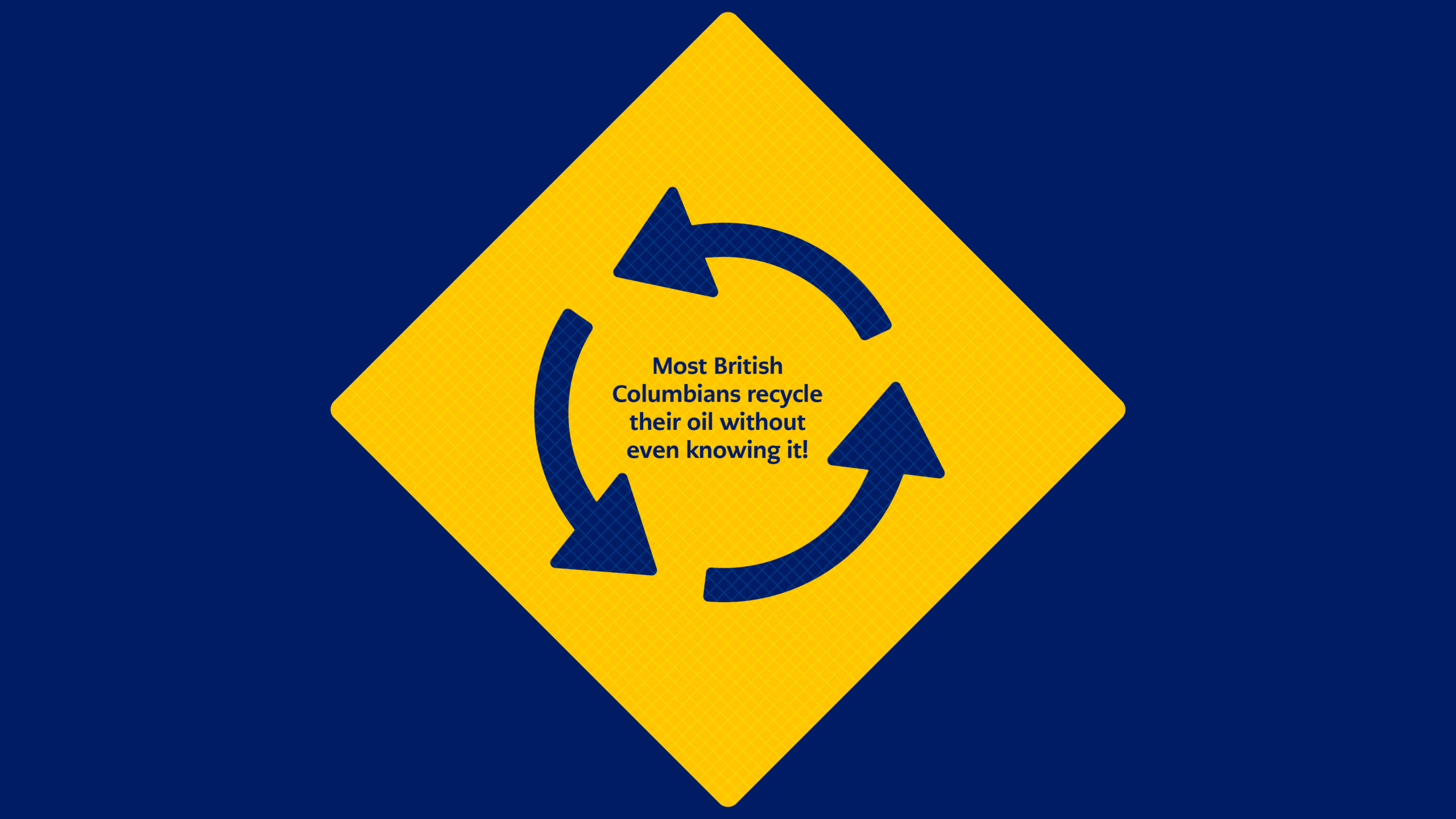
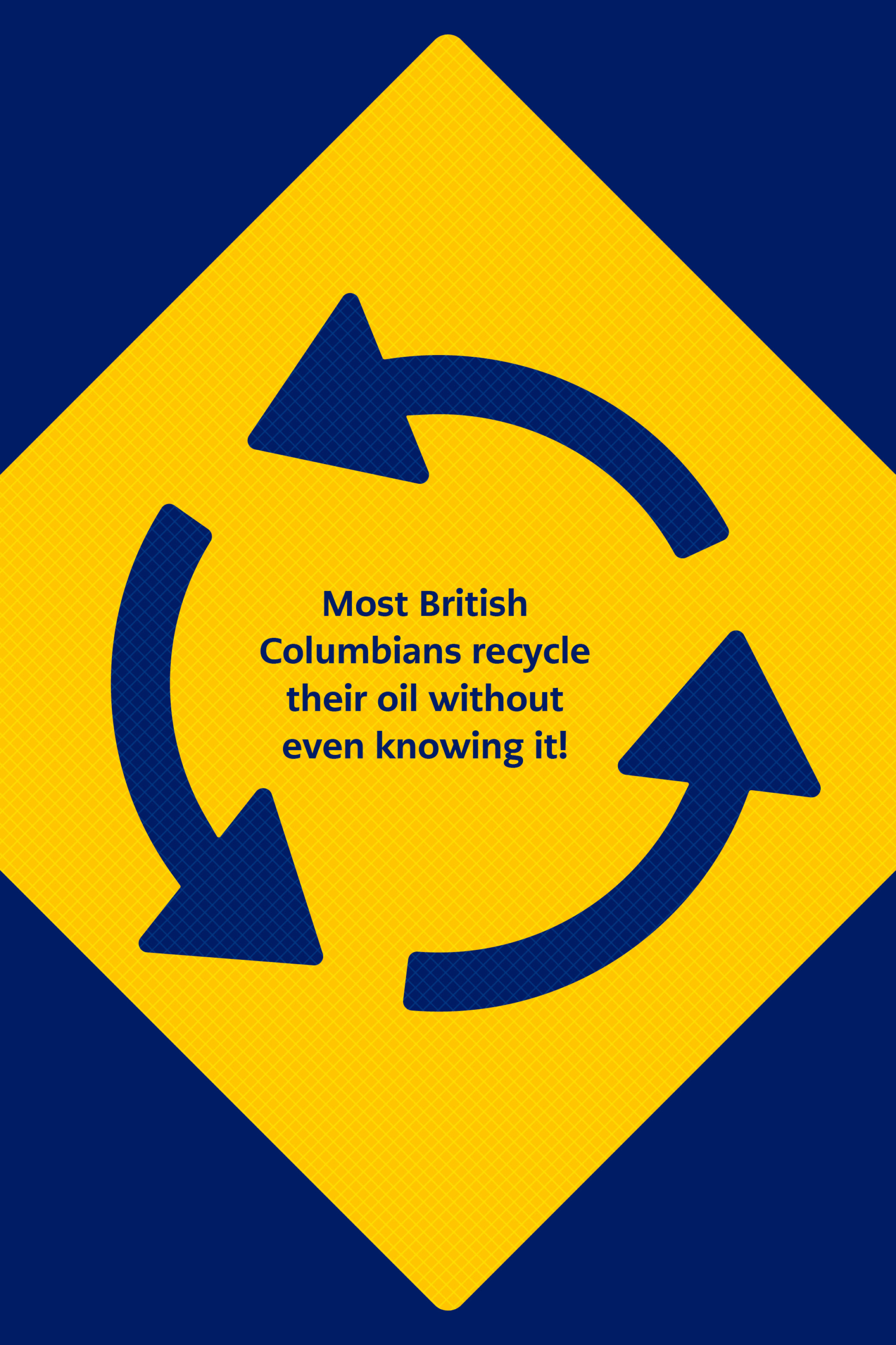
If you get your oil changed at a lube shop or by a mechanic, you are already doing your part to make sure your used oil stays out of the ecosystem. Only a small amount—approximately 6% of the total used oil and antifreeze collected in BC—comes from consumers that change their own oil/antifreeze or small commercial operators that choose to use the free consumer drop-off system.
For consumers that choose to change their own oil or antifreeze, Interchange Recycling has a province-wide network of registered public recycling centres that provide consumers with free access for recycling of program materials.
In 2024, there were 285 publicly accessible recycling centres located in high traffic retail locations, industrial sites, multi-material private depots (bottle depots), and local government recycling/landfill sites.
Each year we look to identify areas of the province that need new facilities and work to find a partner in that area to support. Through the awarding of infrastructure grants, Interchange Recycling ensures each facility has the right equipment to manage program materials. In 2024, a total of 6 grants were awarded.
| Year | Number of Facilities |
|---|---|
| 2024 | 285 |
| 2023 | 288 |
| 2022 | 289 |
| 2021 | 286 |
| 2020 | 273 |
99.6% of British Columbians currently have reasonable access to a recycling location. Interchange Recycling continues to work with recycling centre operators to ensure all public facilities are safe and secure by providing grants for new infrastructure such as modified sea containers with spill containment, collection tanks, and consumer friendly signs.
Given the low product volumes represented by consumer collection, accessibility to recycling (see Page 30) is considered a more meaningful Interchange Recycling performance measure for this stream than the level of product recovery.
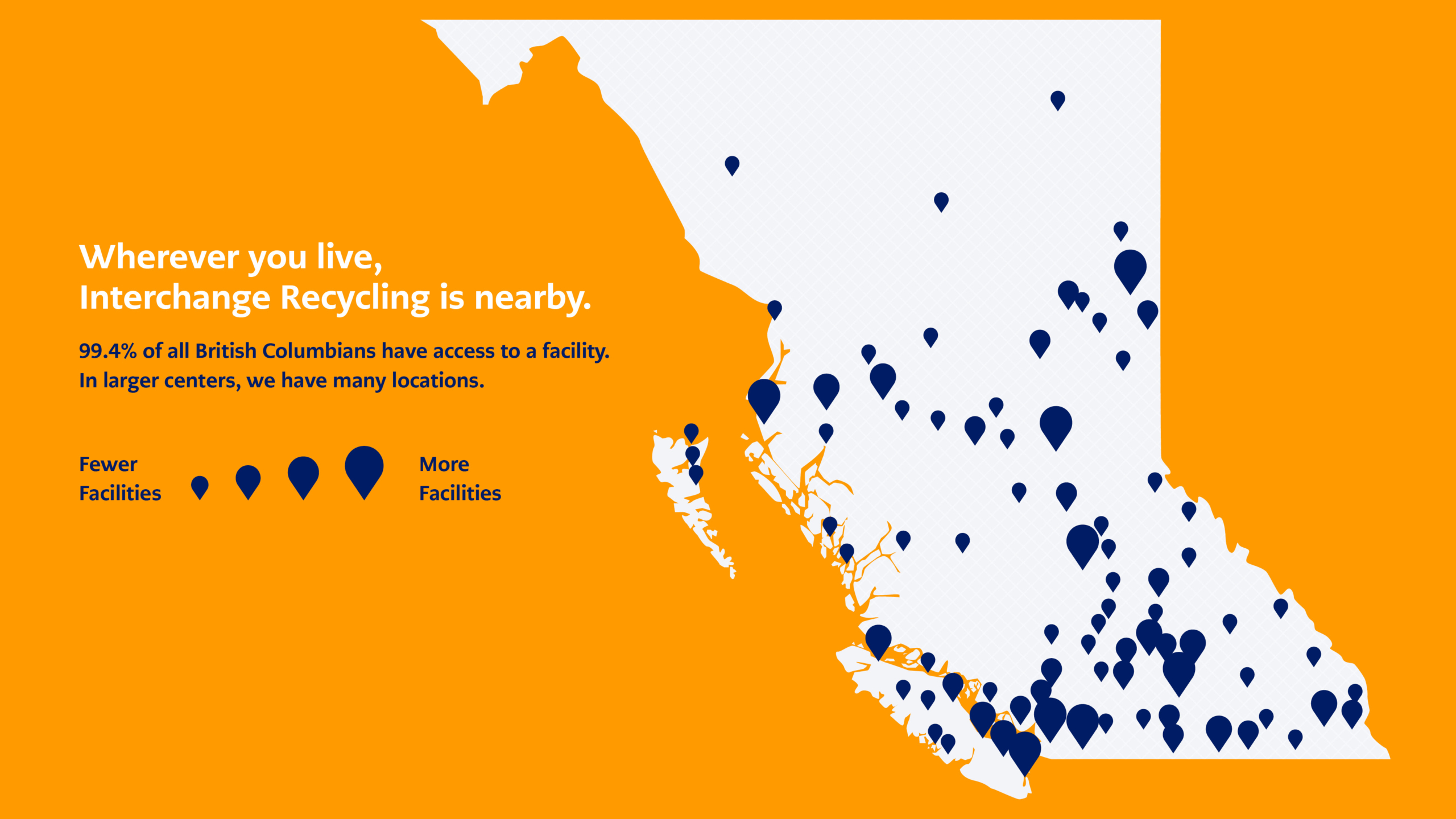
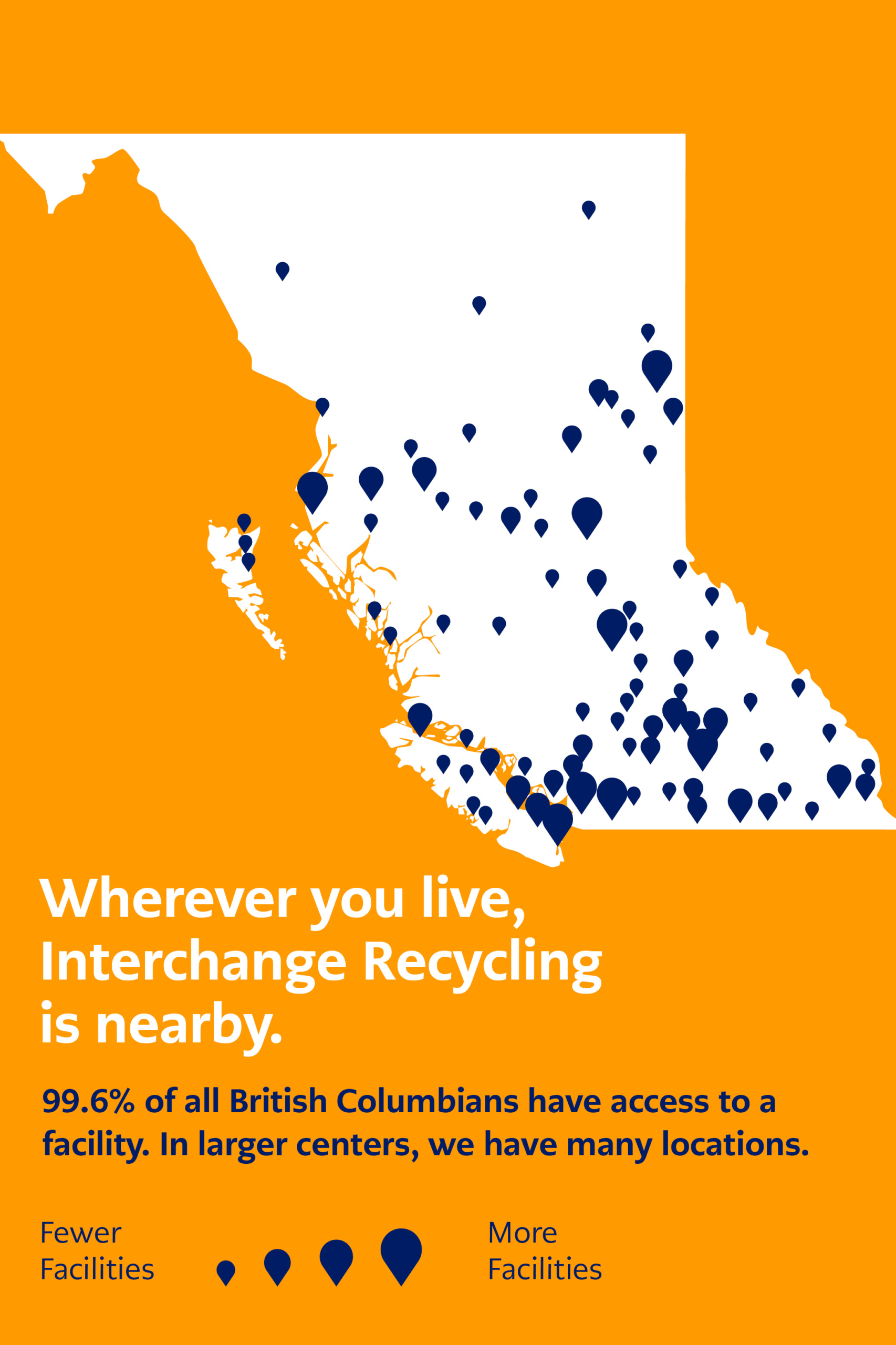
Accessibility
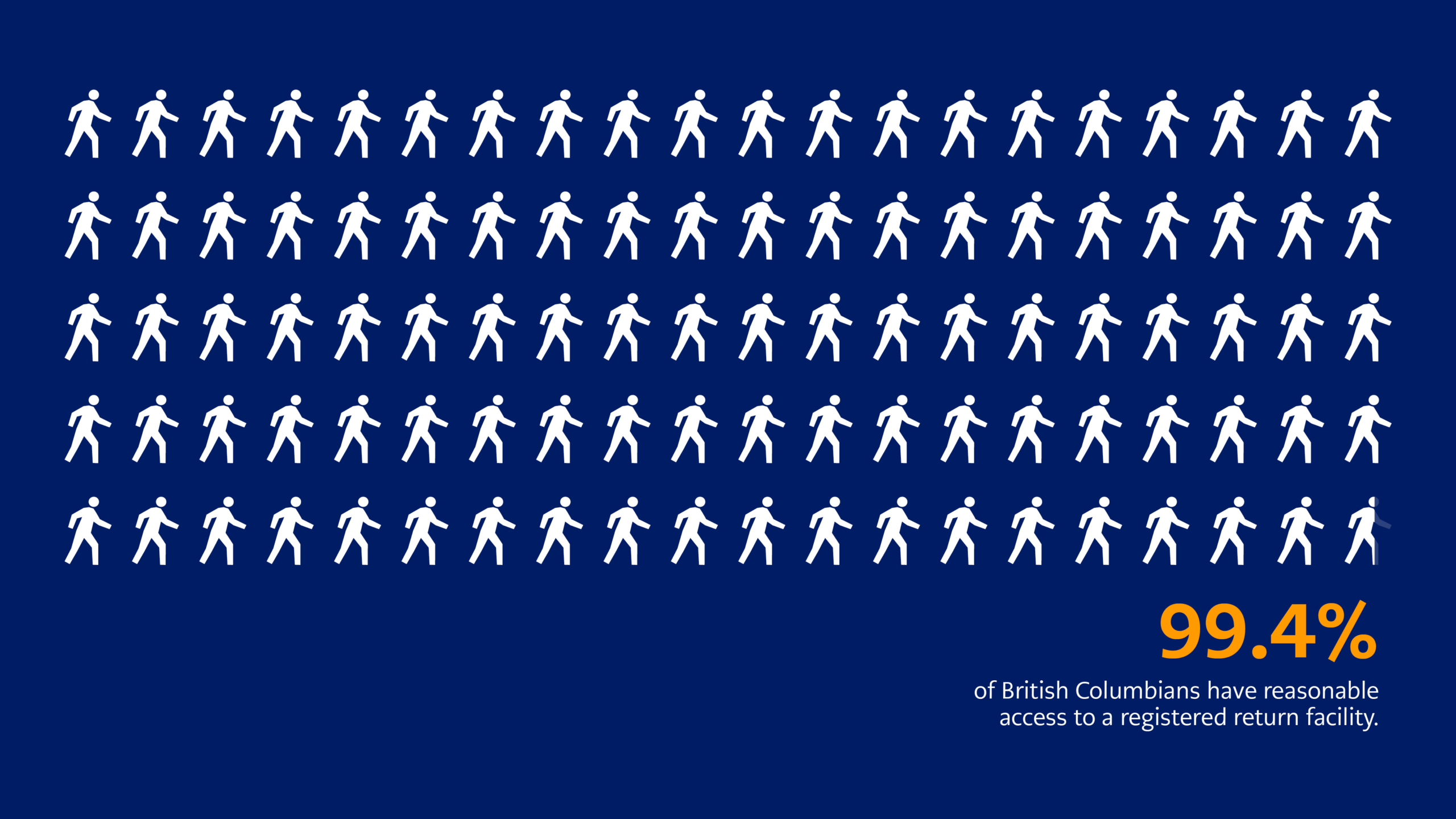
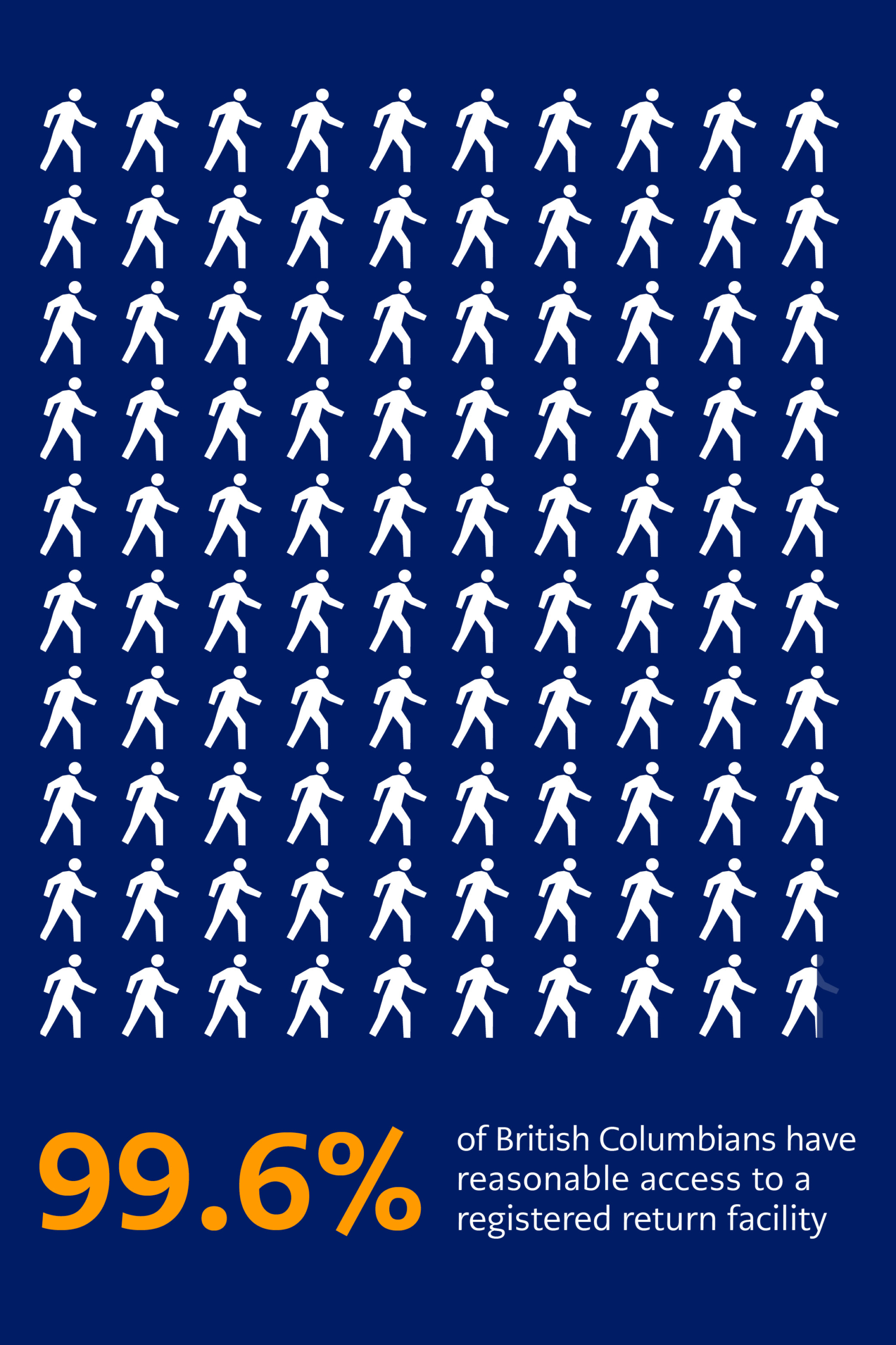
Ensuring that all British Columbians have reasonable access to a registered facility is a key goal for our organization. The Interchange Recycling accessibility standard has been developed to ensure that at least 95% of the BC population has access to a registered facility that accepts program materials. This standard is based on the following model:
| Community Type | Enhanced Service Level (target) |
|---|---|
| a) City, High Industrial | Minimum one facility |
| b) City, Low Industrial | Minimum one facility or one facility within a 15-minute drive |
| c) Town, High Industrial | Minimum one facility |
| d) Town, Low Industrial | Minimum one facility or one facility within a 15-minute drive or collection event |
| e) Village | Minimum one facility or one facility within a 30-minute drive or collection event |
| f) Other | Minimum one facility or one facility within a 30-minute drive or collection event as recommended by IZWTAG |
In addition to our network of publicly accessible recycling centres, we offer mobile collection services and community collection events as a way to ensure reasonable access to our program.
Capture Rates in 2024
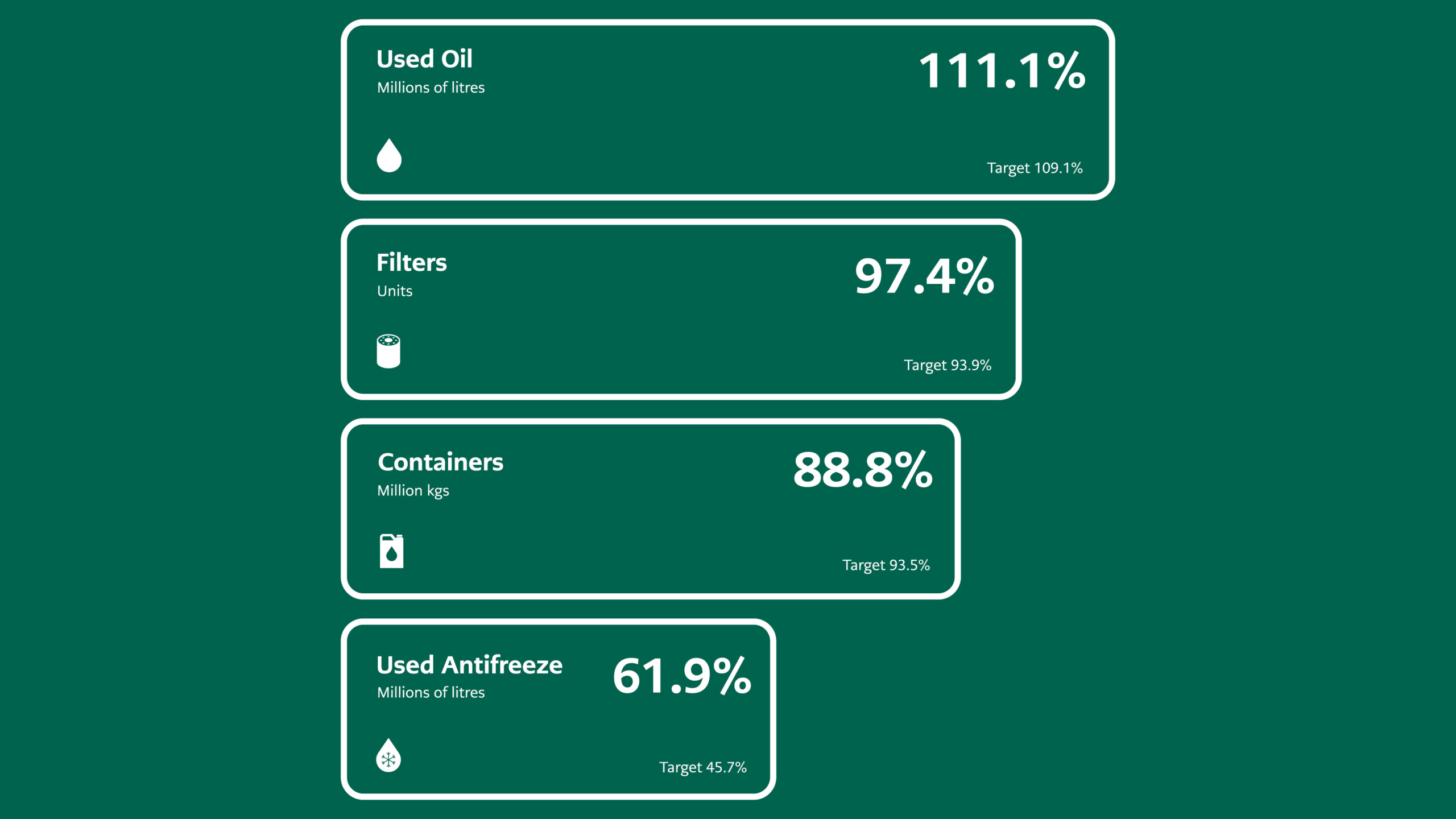
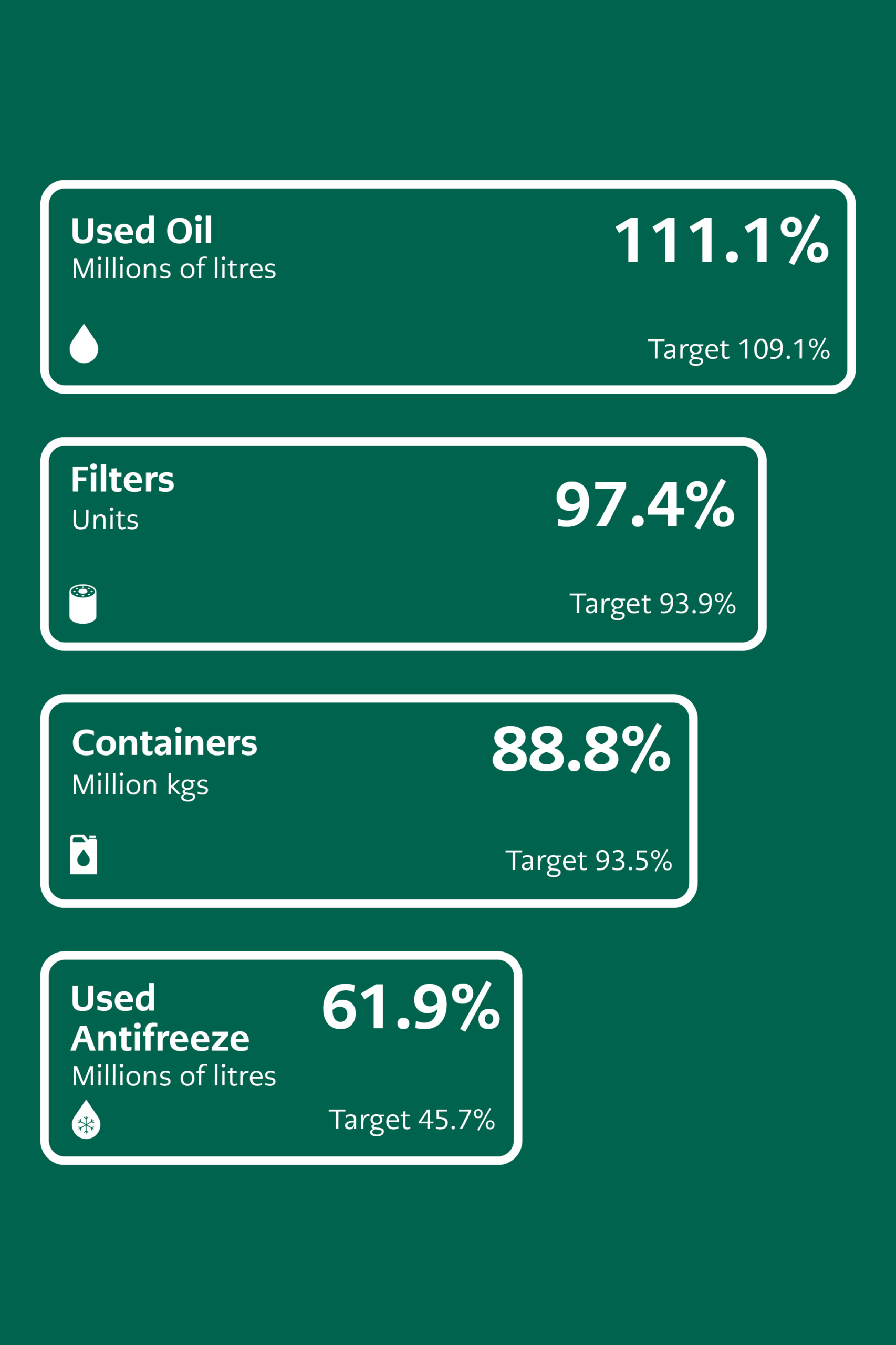
Product Collection
With over 20 years of history working in British Columbia, our product collection numbers consistently exceed the 75% benchmark identified in the Recycling Regulation.
Absolute collection for used oil, antifreeze, oil filters and used oil and antifreeze containers decreased in 2024 by 4.2%, 0.17, 4.56% and 10.6% respectively. Product sales in 2024 decreased for antifreeze and oil filters by 7.7% and 1.9% respectively while increasing by 2.27% for used oil and 2% for used oil and antifreeze containers.
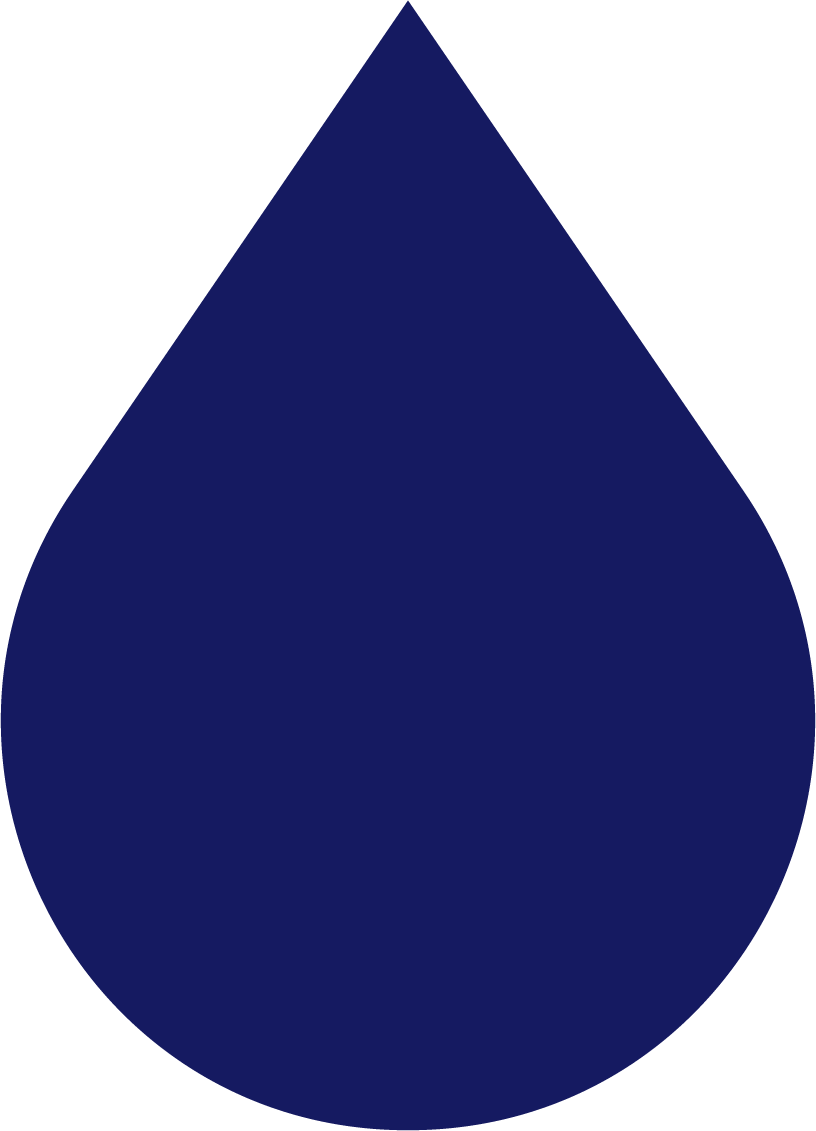 Used Oil (Millions of litres) | 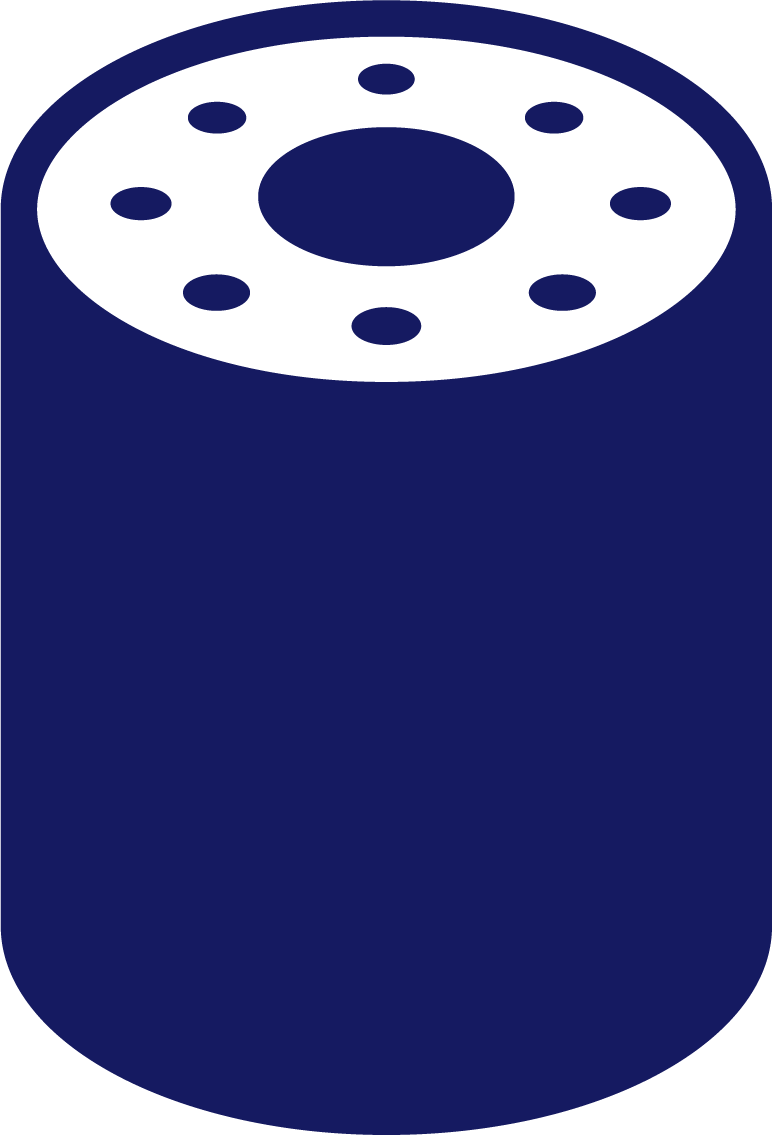 Filters (Millions of Units) | 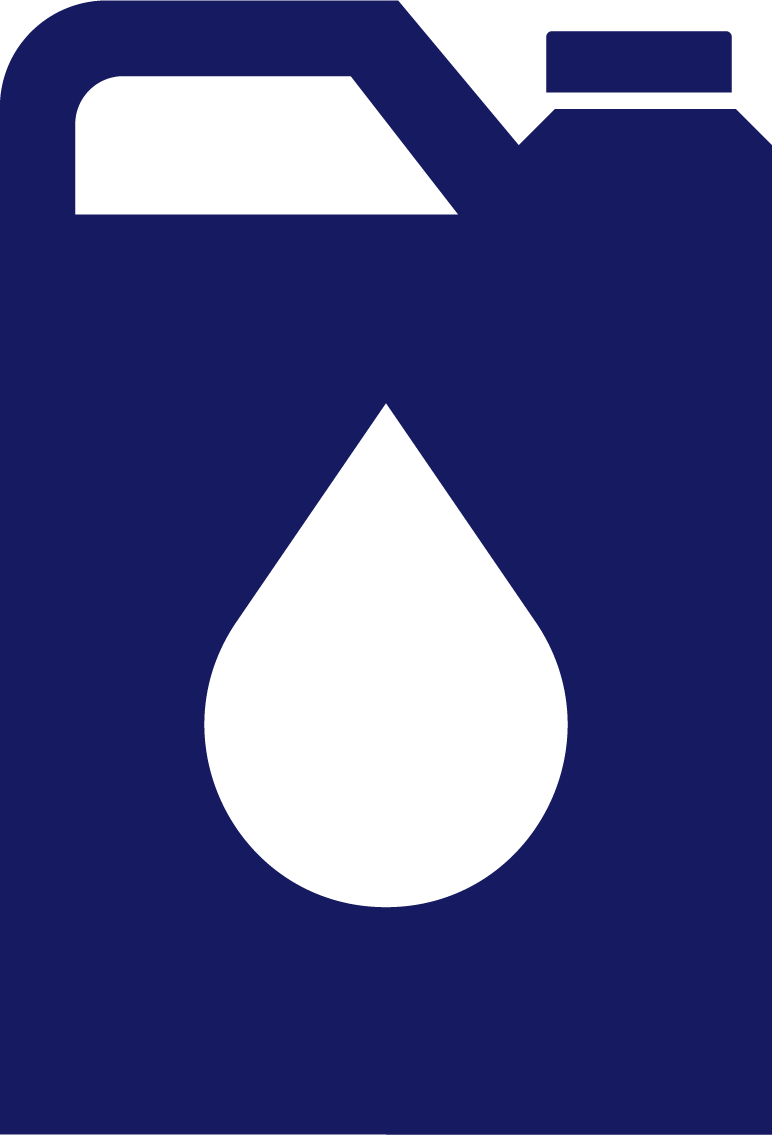 Containers (Millions of Kilograms) | 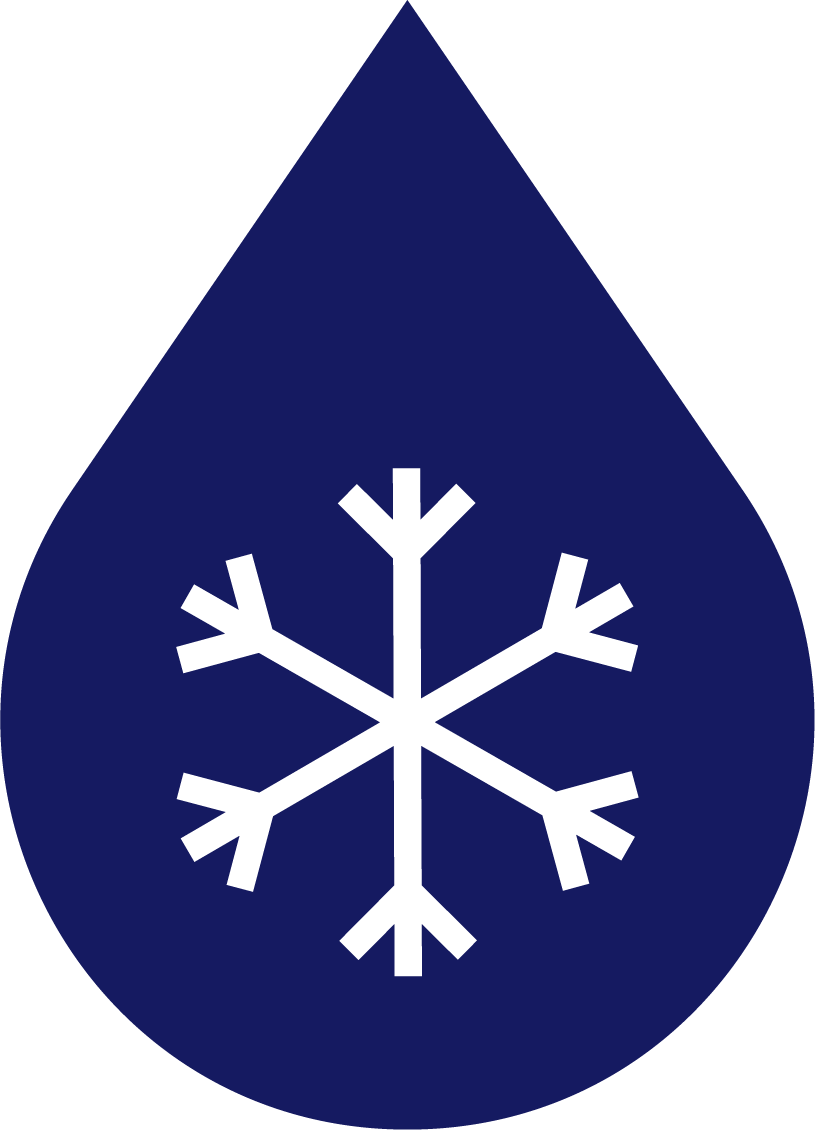 Used Antifreeze (Millions of Litres) | |
|---|---|---|---|---|
| Sold (2024) | 82.0 | 6.0 | 1.7 | 9.9 |
| Consumed in use | 24 | n/a | n/a | 6.1 |
| Repurposed | 15 | n/a | n/a | n/a |
| Available for collection | 43 | 6.0 | 1.8 | 3.7 |
| Collected | 47.7 | 5.9 | 1.6 | 2.3 |
| Capture rate* | 111% | 97% | 89% | 62% |
Only a portion of every litre of oil and antifreeze sold is available for recovery because an estimated 29.3% of the oil and 62.1% of the antifreeze is consumed during use and an estimated 26% of oil not consumed in use is re-purposed each year and is not available for collection.
The collection results by Regional District are provided on Page 37.
End Fate for Products Collected

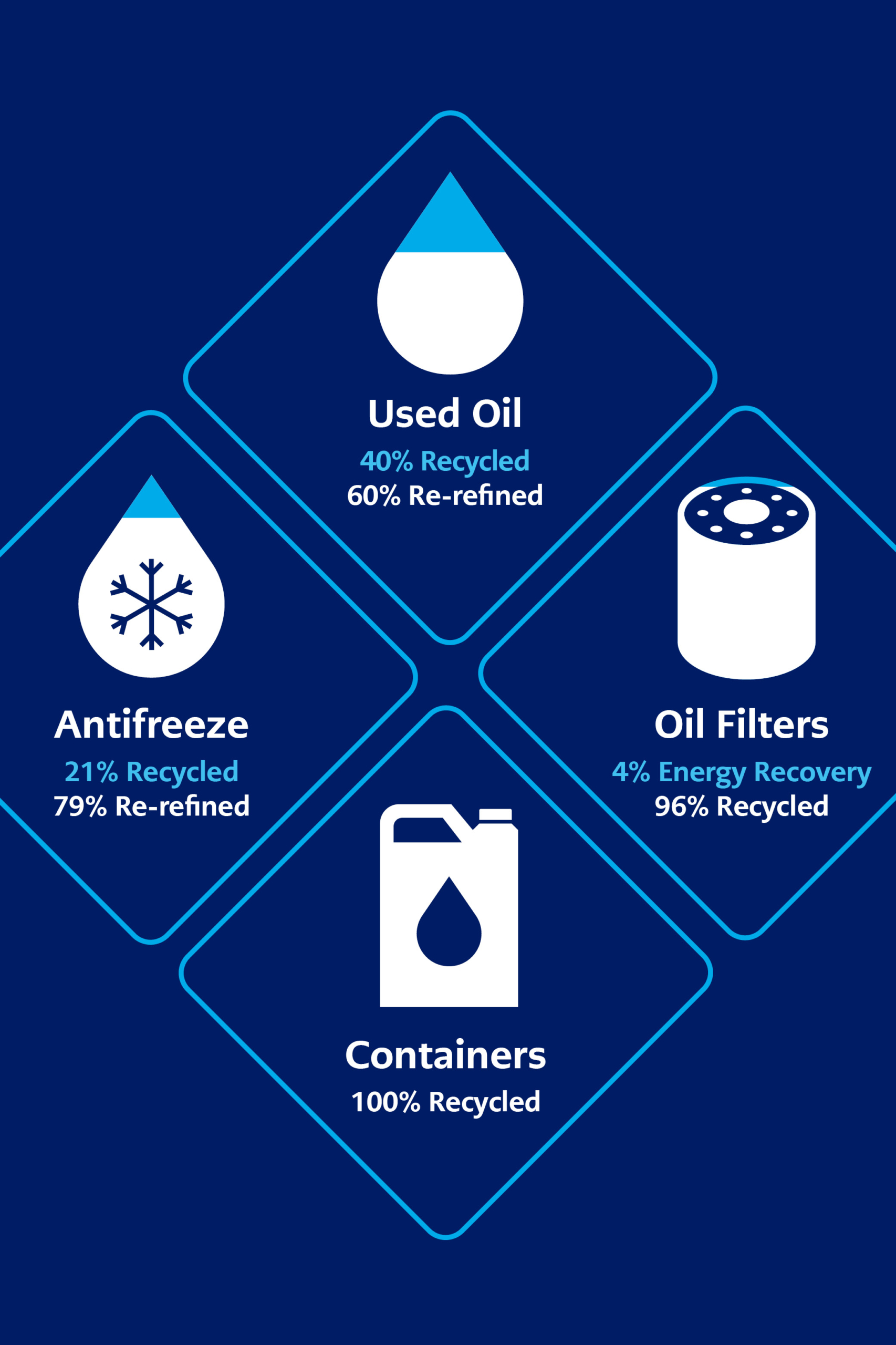
Product Management
Collected products are managed in accordance with the Pollution Prevention Hierarchy as outlined in the BC Recycling Regulation.

Used Oil
Oil previously sold as lubricating oil is collected and re-refined into new lubricating oil. Some oil is collected, transformed and used as an industrial product. This includes re-refining and use as a fuel for pulp mills, cement kilns, asphalt plants and other uses that meet the Hazardous Waste Regulation or applicable government standards in other states or provinces, such as for mining explosives or exploration drilling. Collected products are managed in accordance with the Pollution Prevention Hierarchy as outlined in the BC Recycling Regulation.

Used Antifreeze
Antifreeze previously sold as an antifreeze product is recycled and reused as an antifreeze product. Antifreeze processors are already actively involved in processing used antifreeze to the point where an additive package can be included, and the recycled antifreeze can again be sold as automotive antifreeze.

Used Oil Filters
Metal filters are collected and recycled into other metal products like rebar, nails, and wire. The paper elements are processed through an oil recovery system with the residual being managed in a waste to energy facility to recover the remaining inherent oil.

Used Oil & Antifreeze Containers
Plastic and metal containers are recycled into new plastic and metal products. Interchange Recycling is proud of the fact that both used antifreeze and empty containers are processed and recycled at facilities right here in British Columbia. Managing these products locally provides significant environmental, economic and social benefits that support our transition to a more sustainable and Circular Economy.
